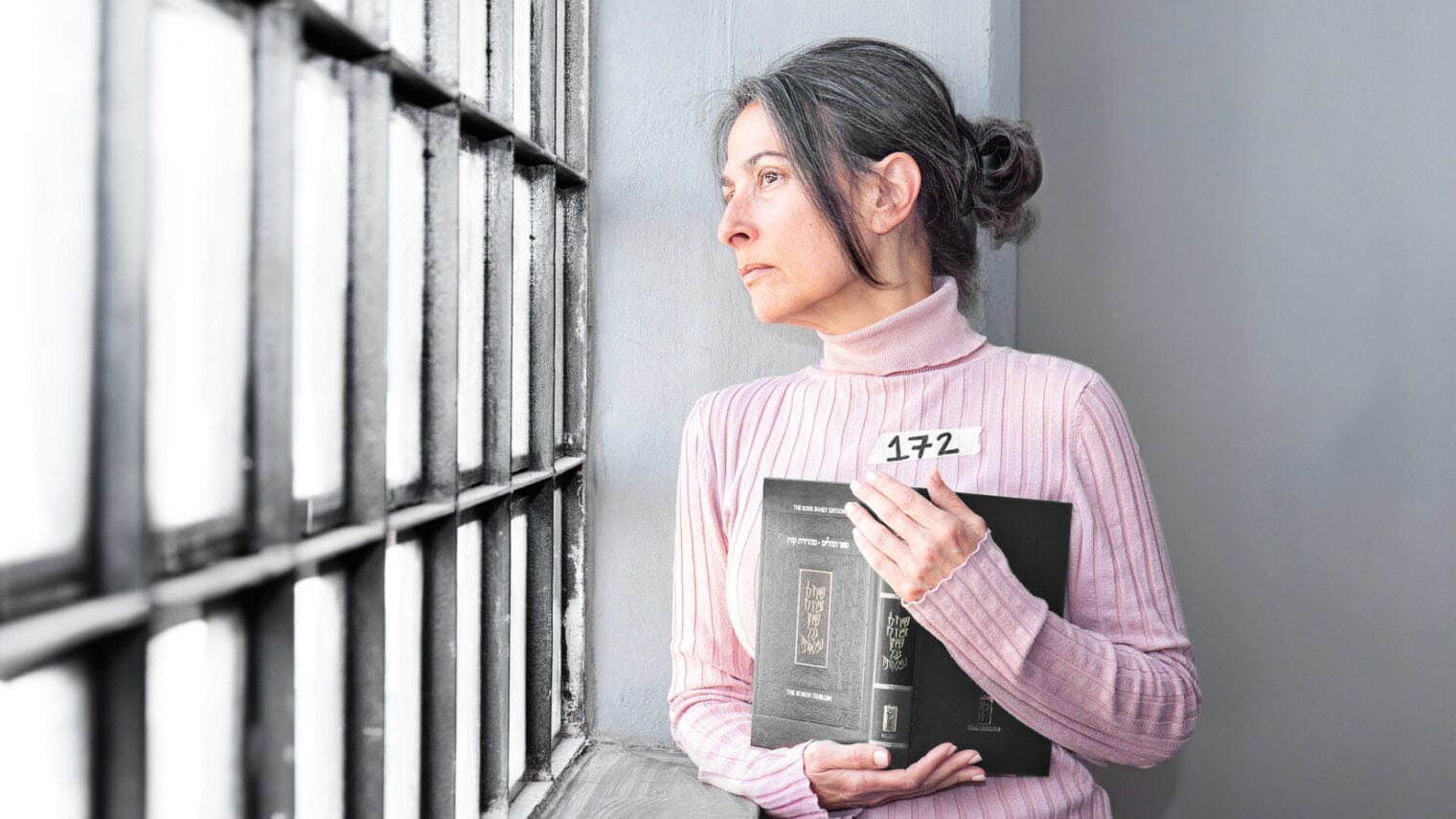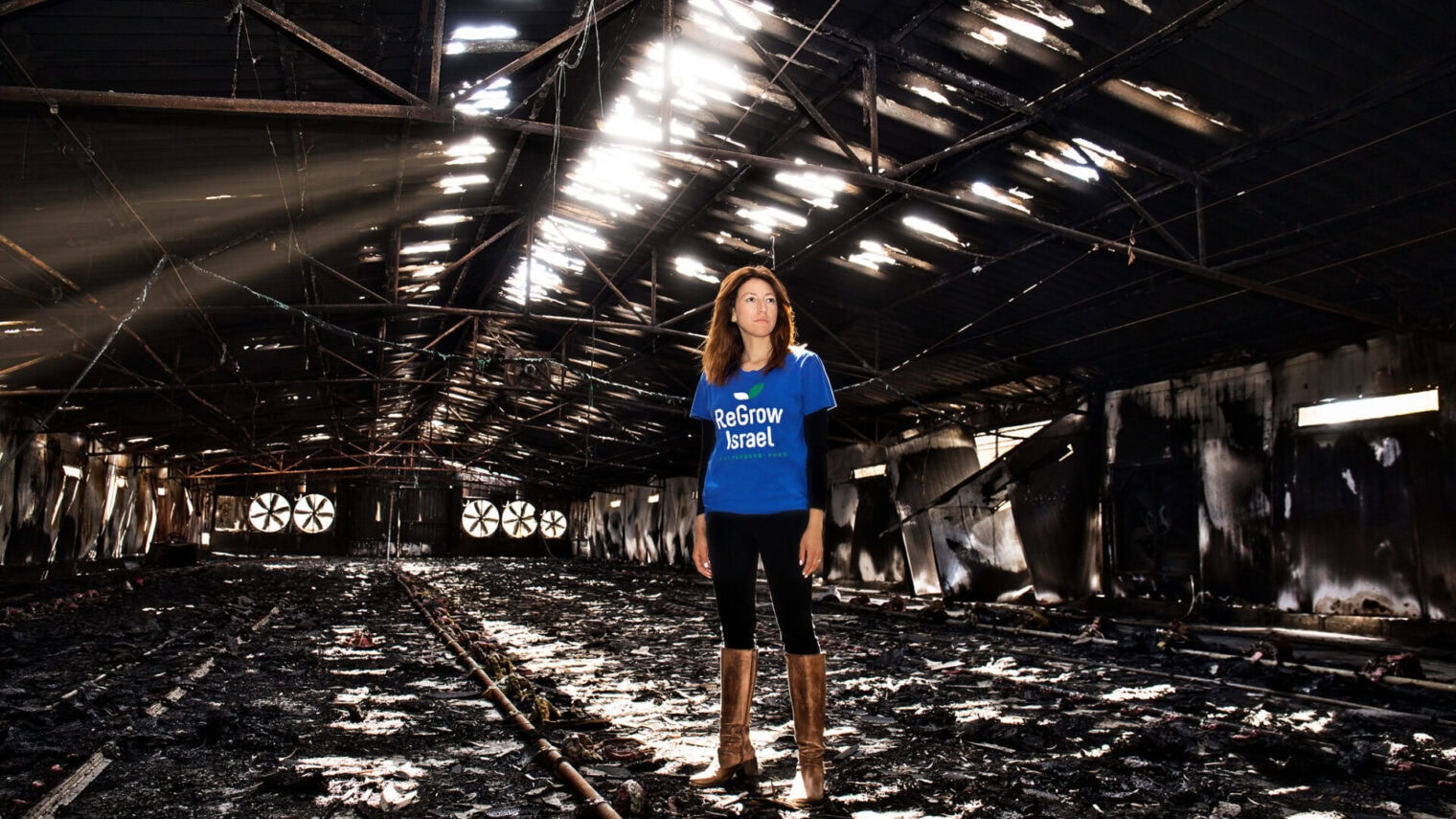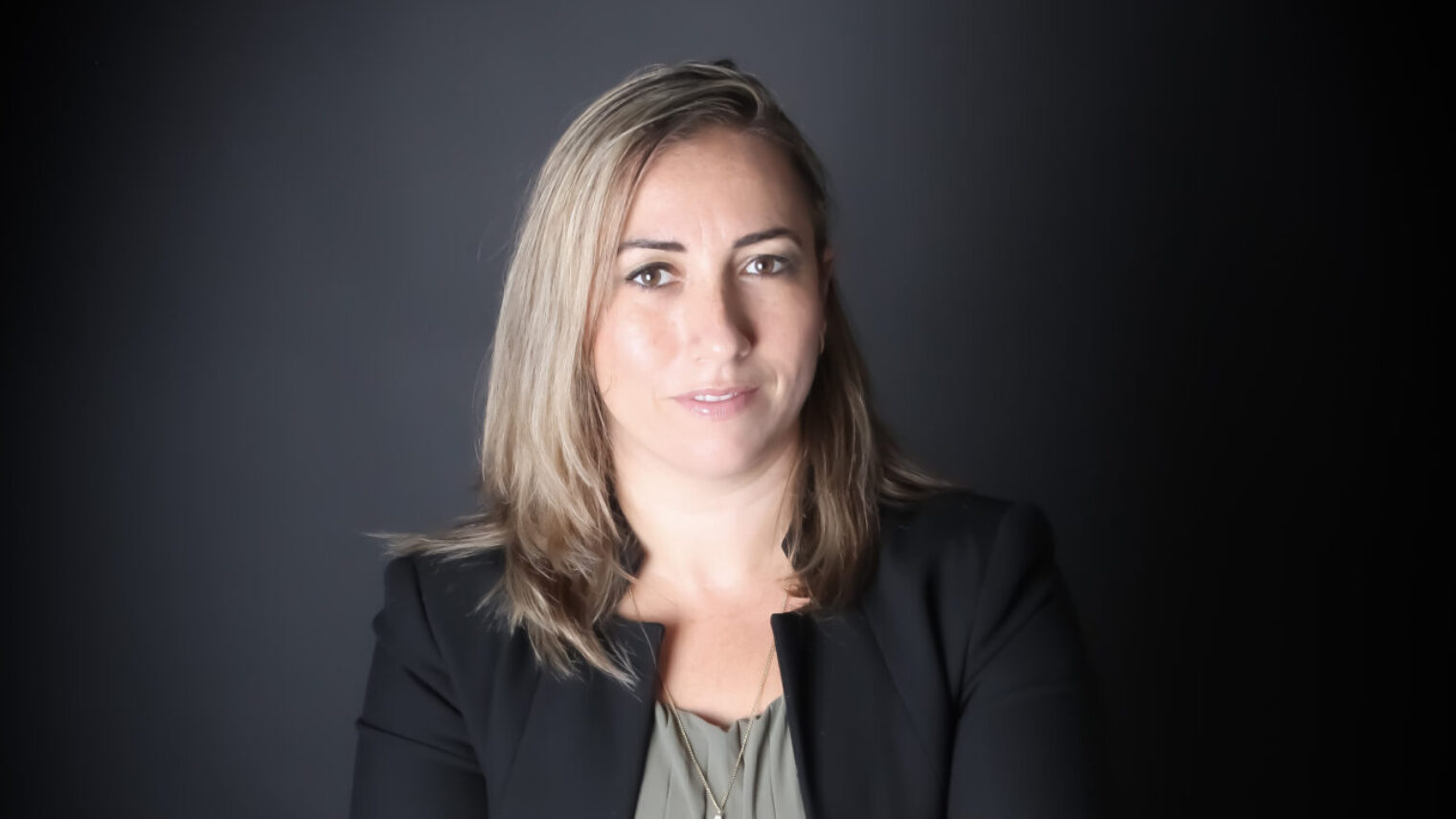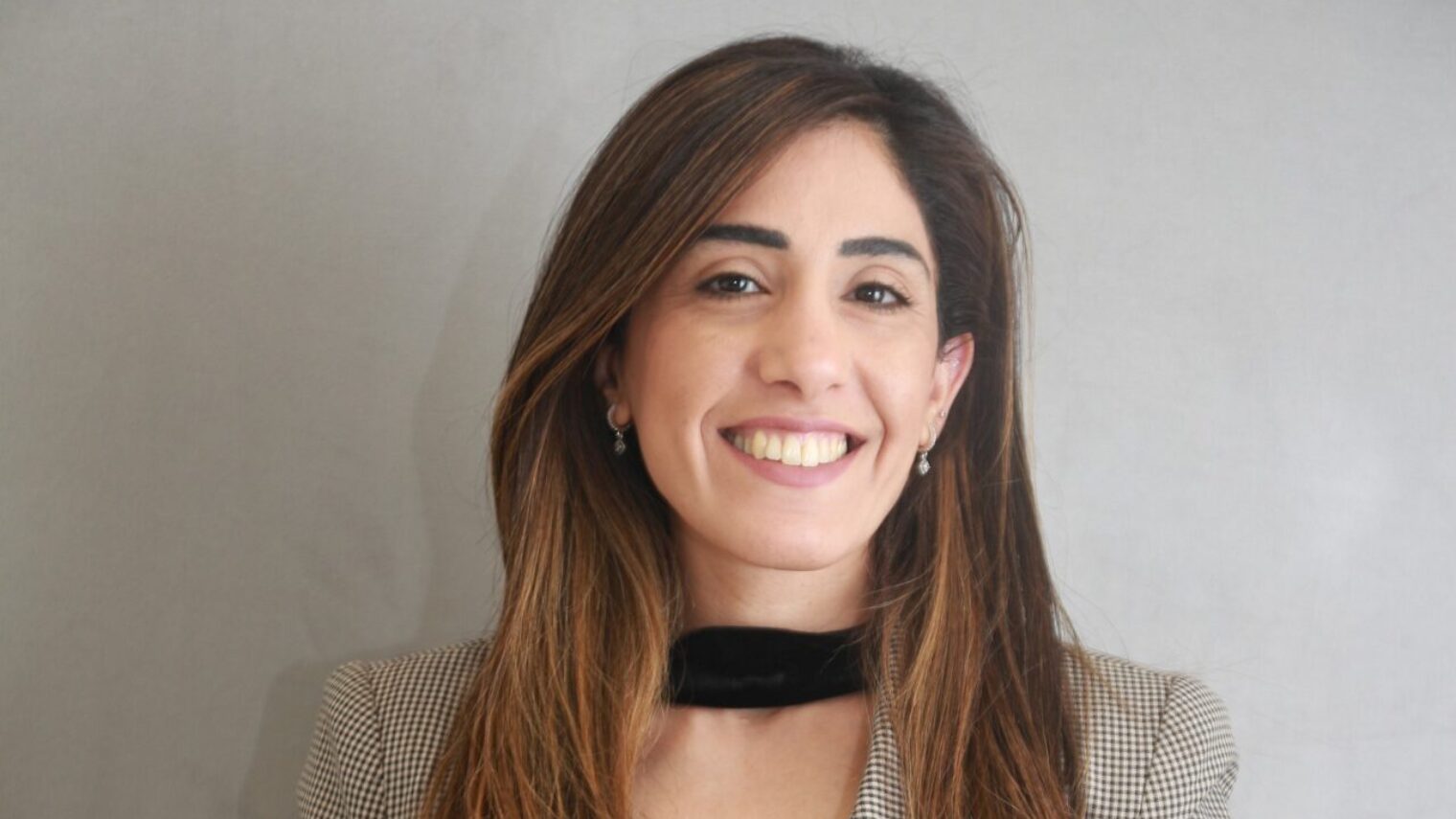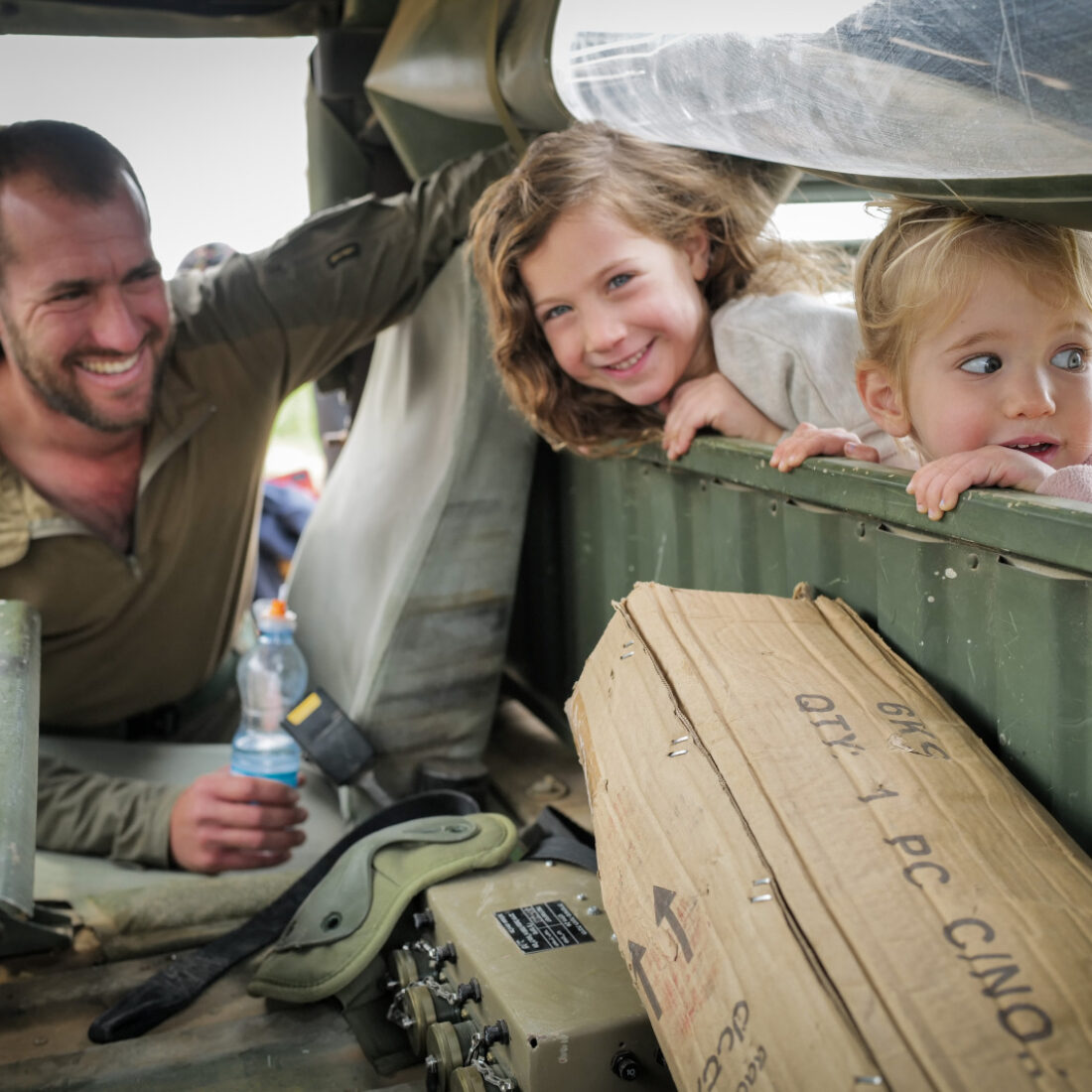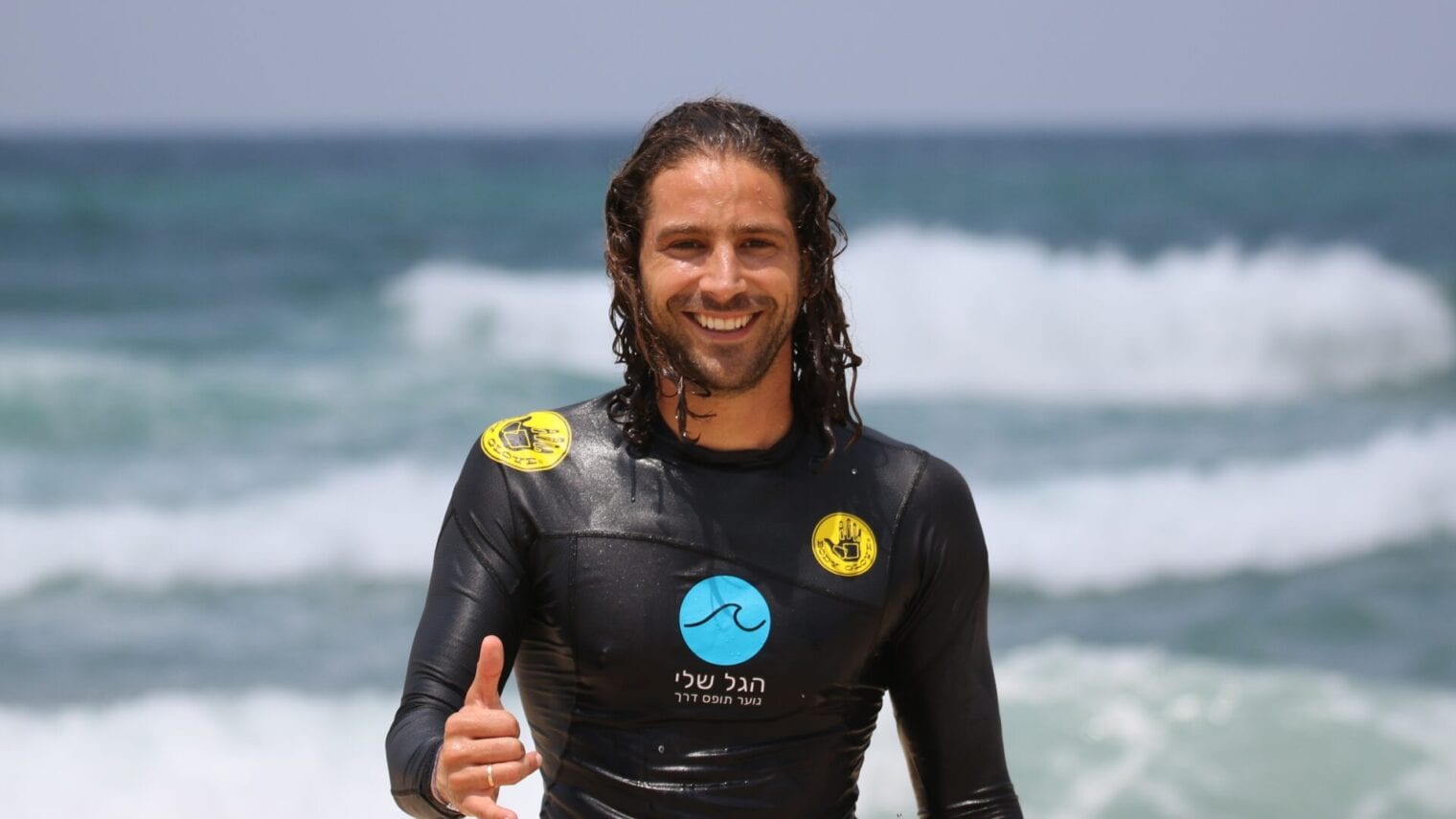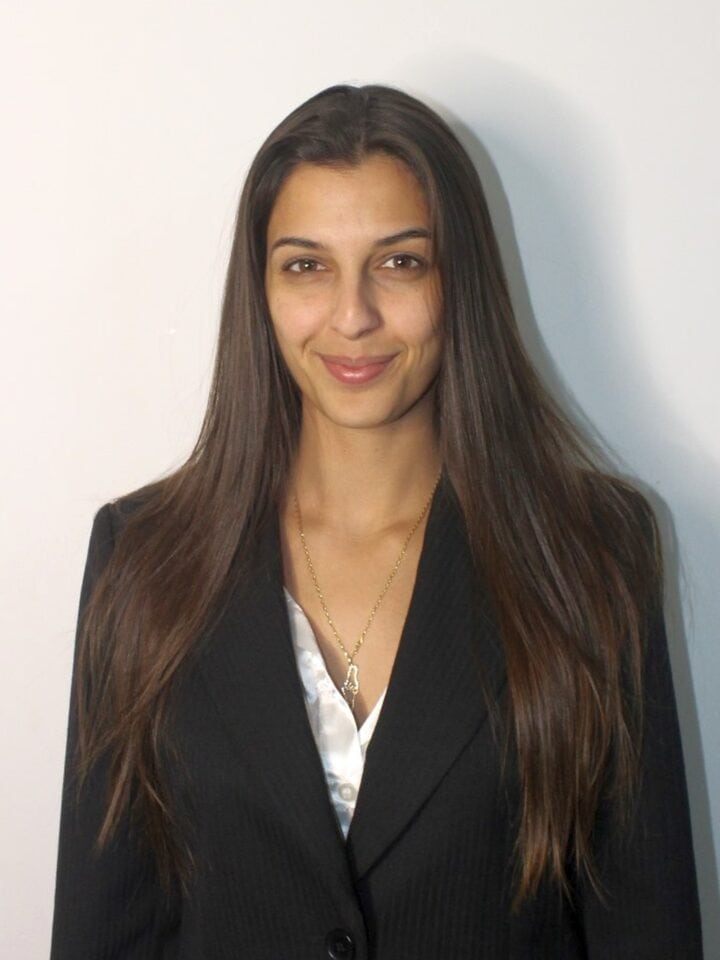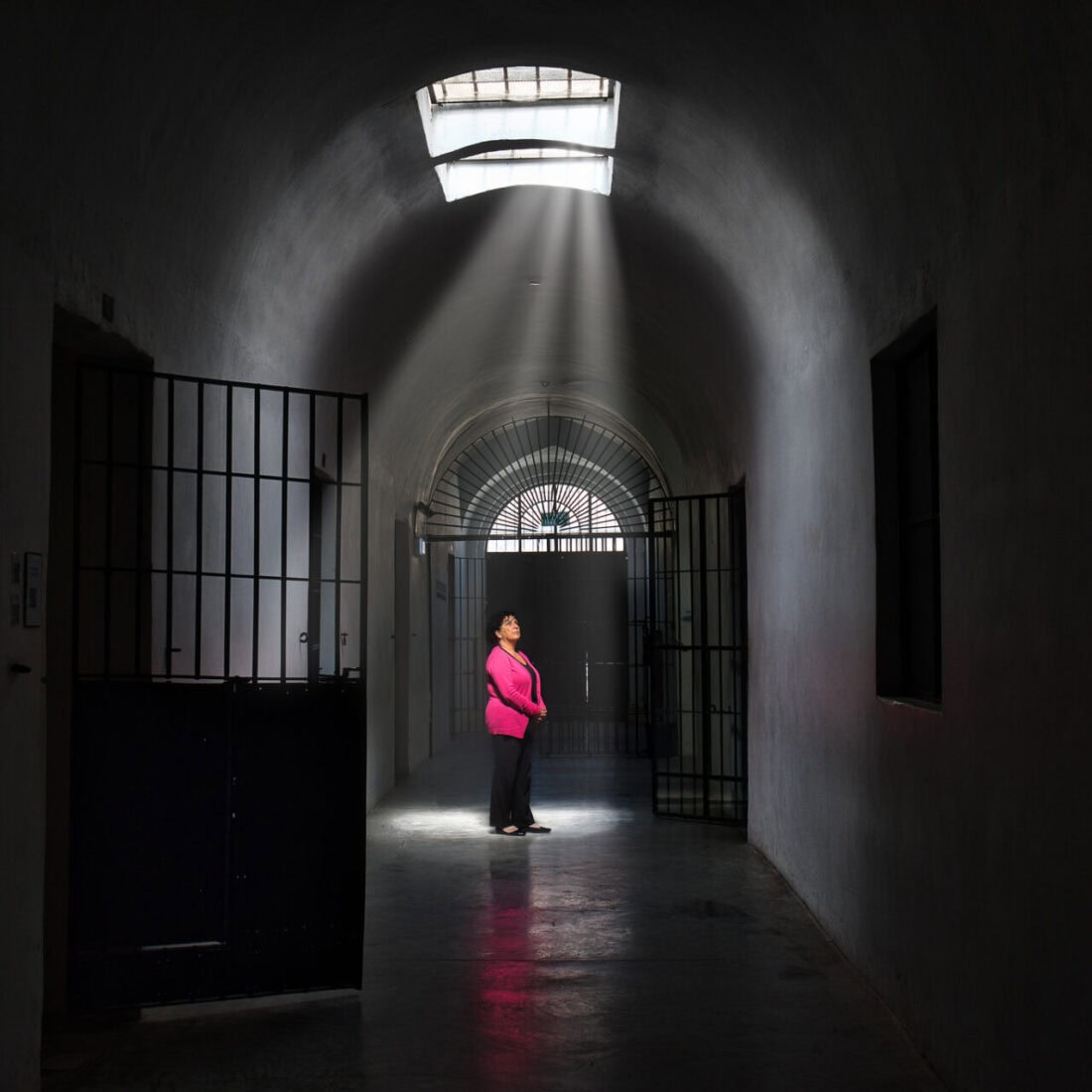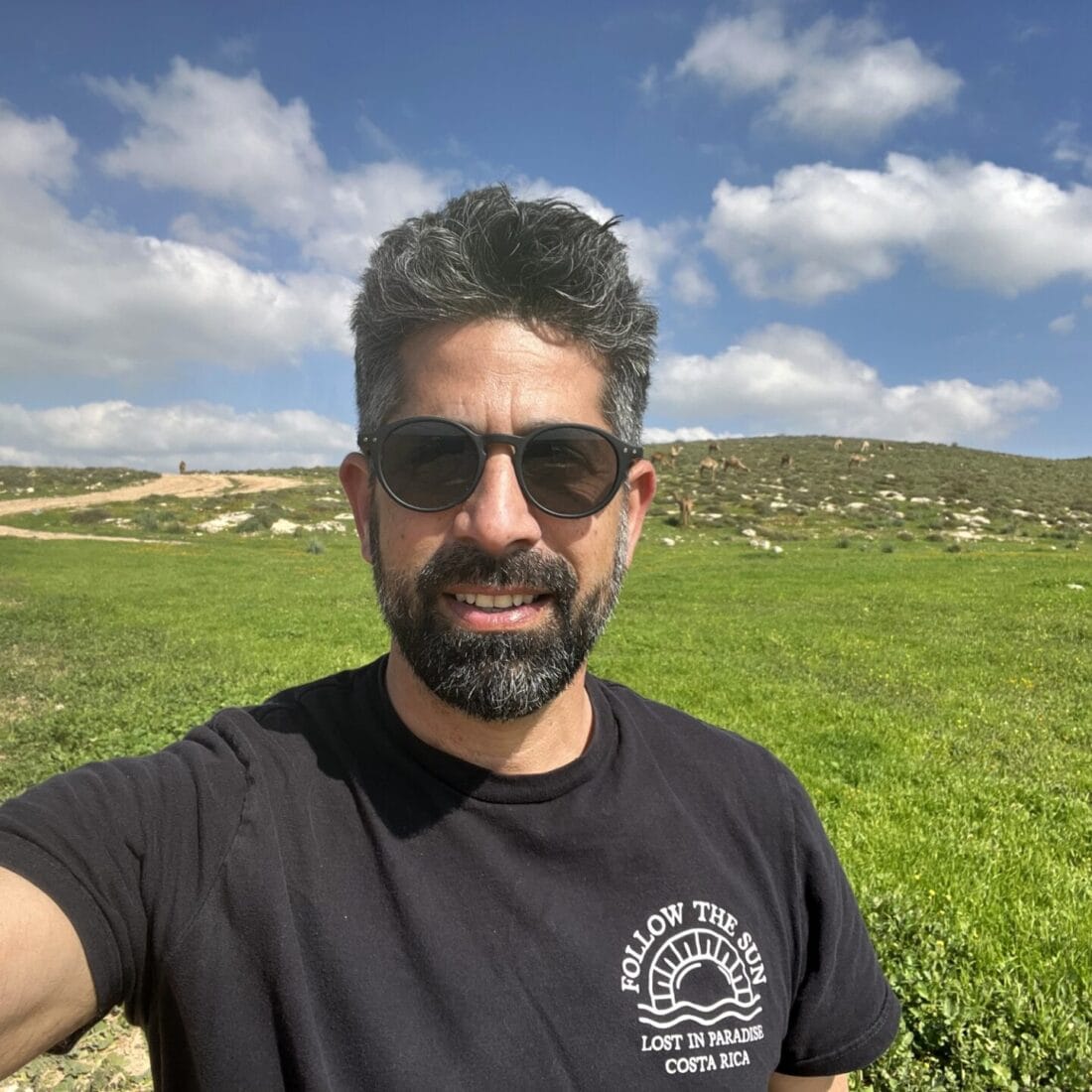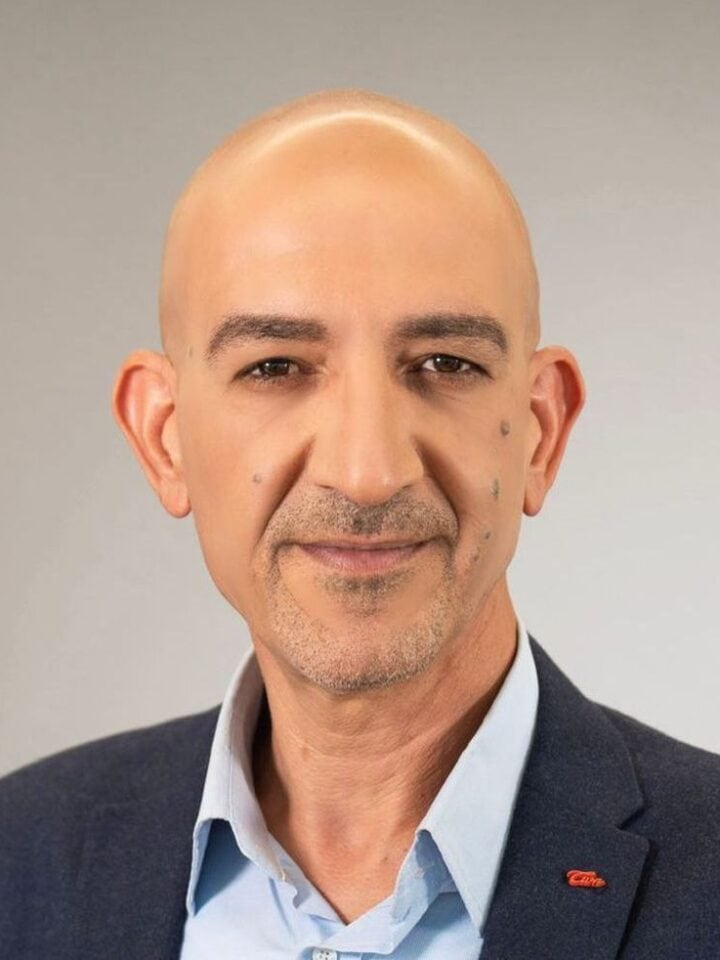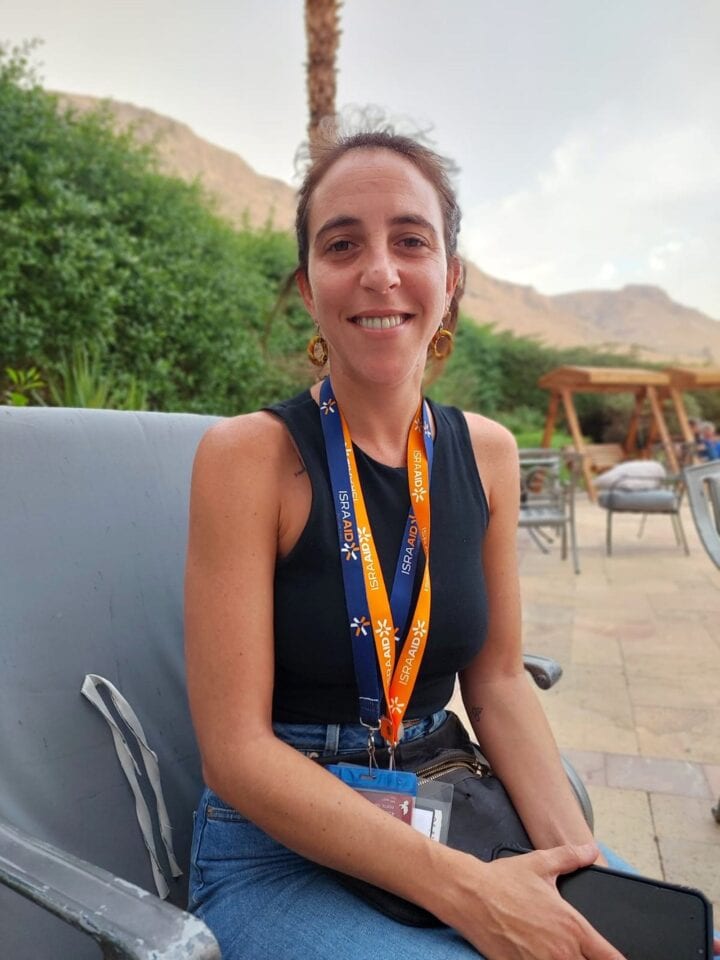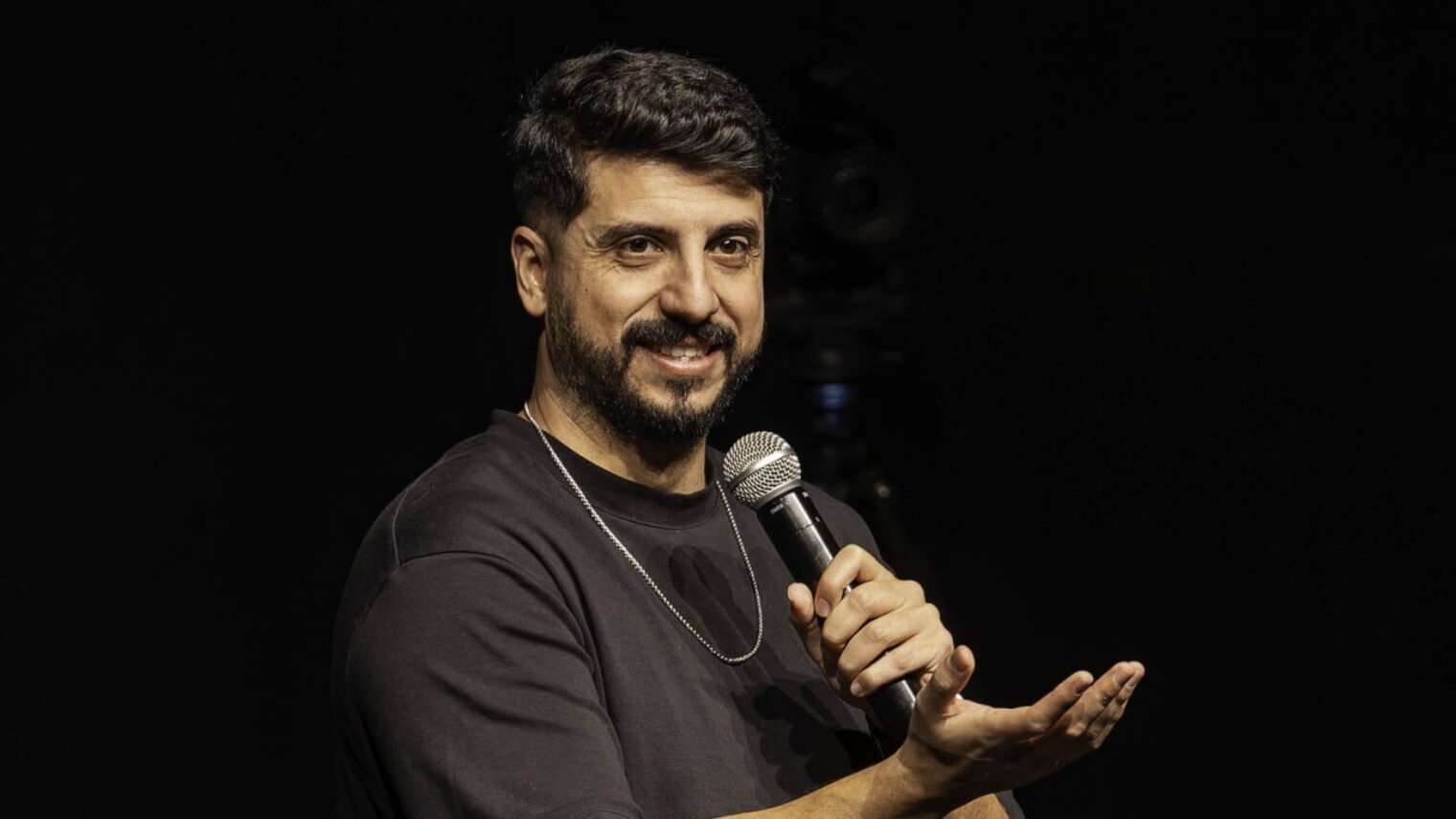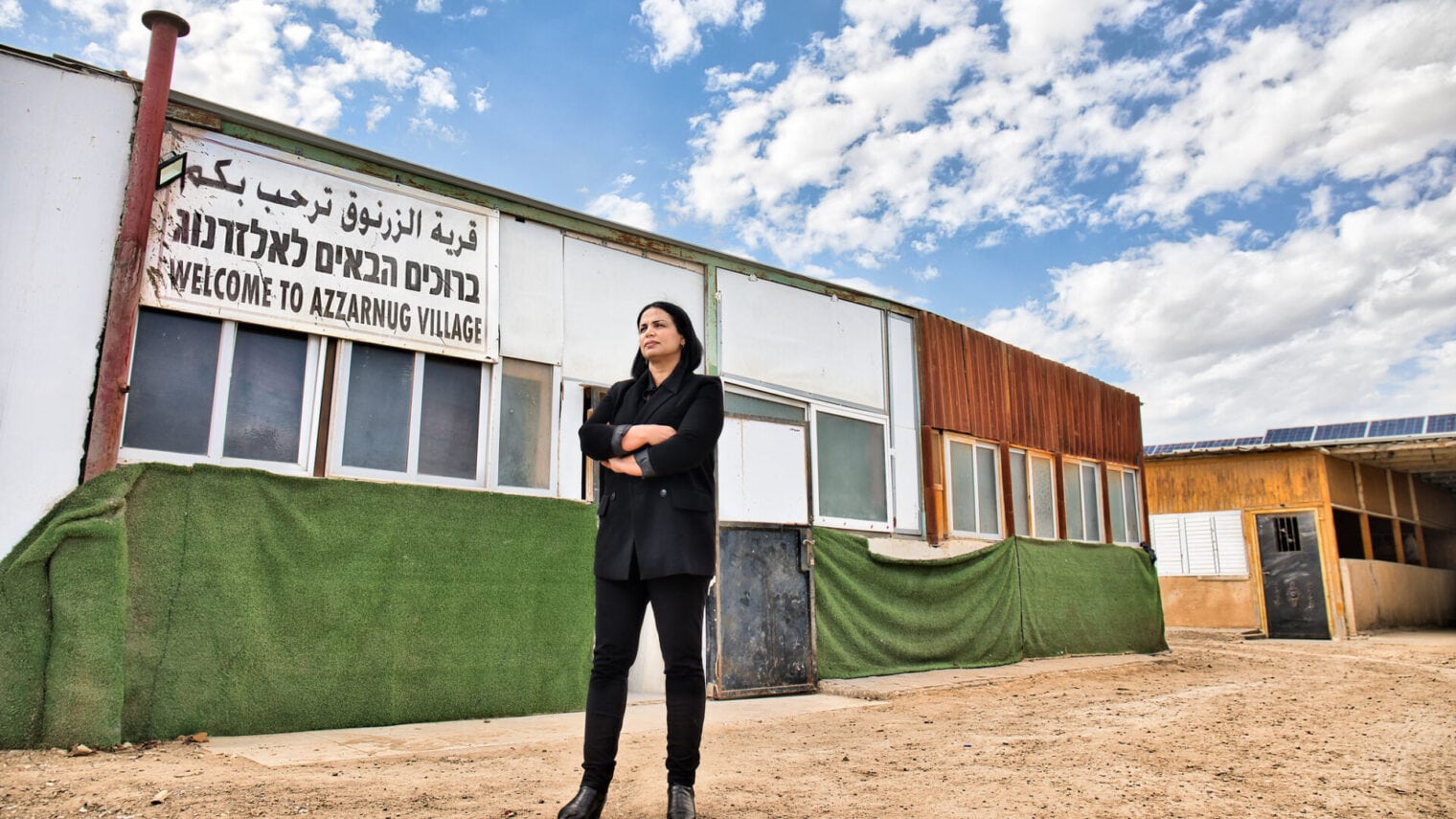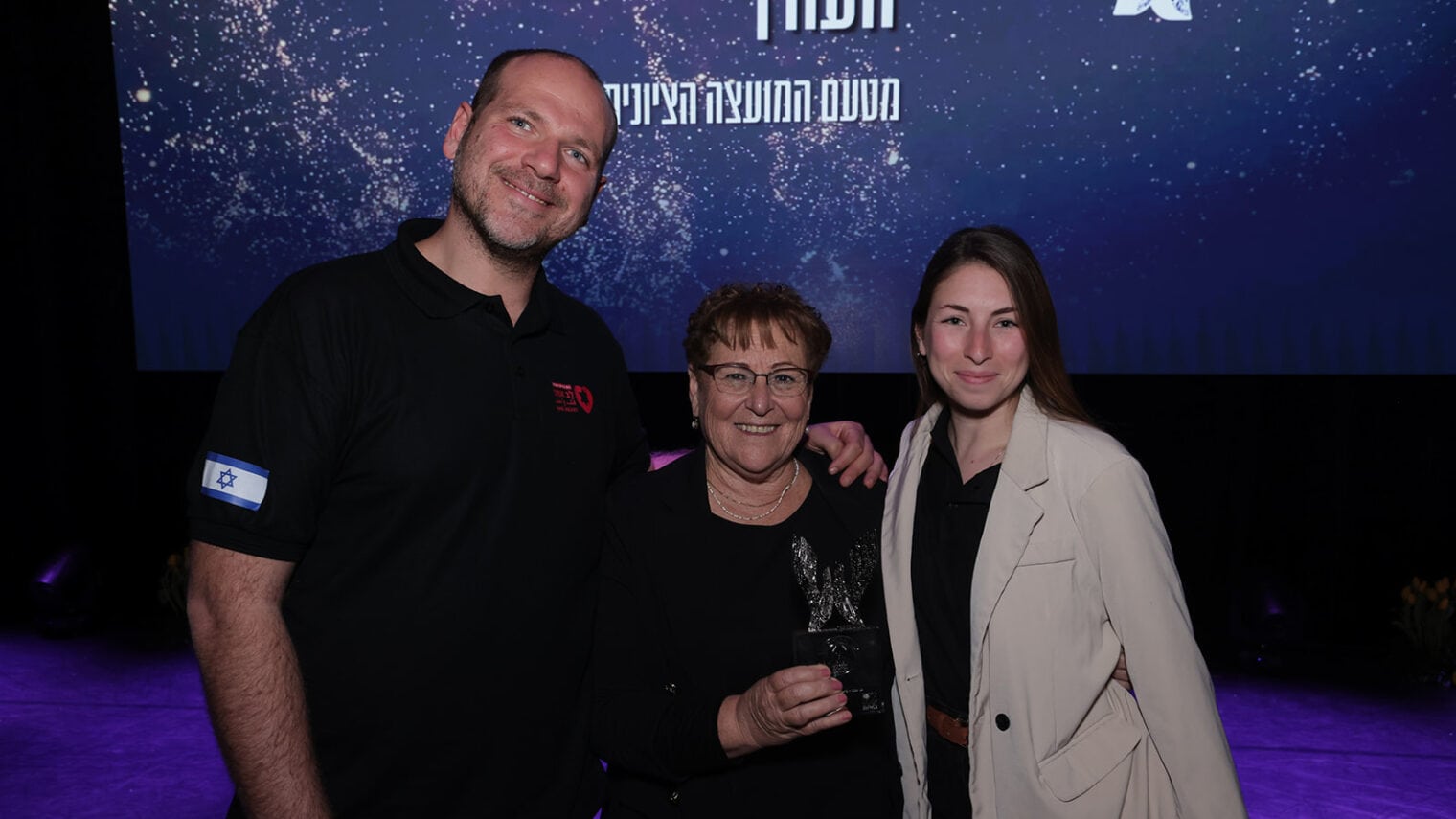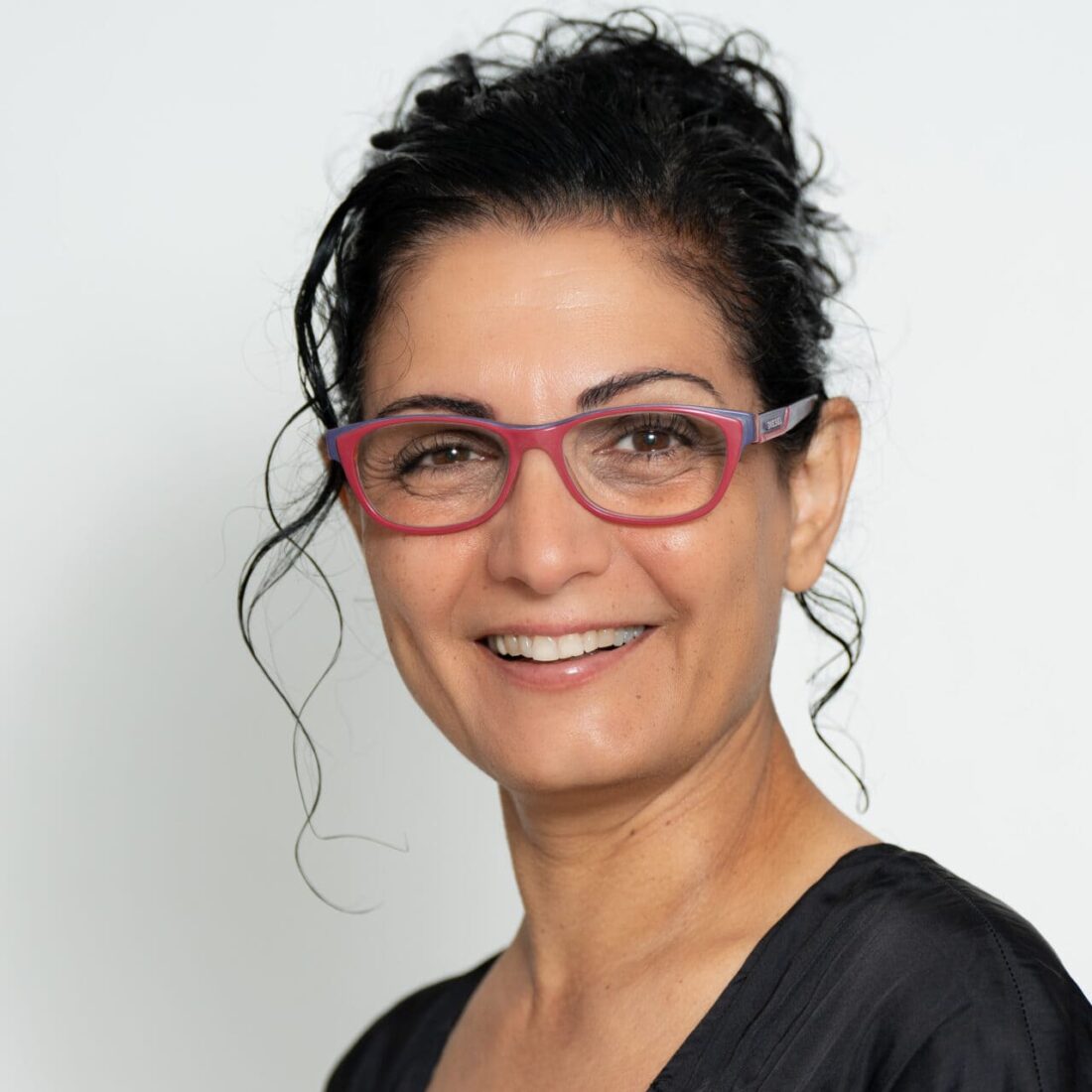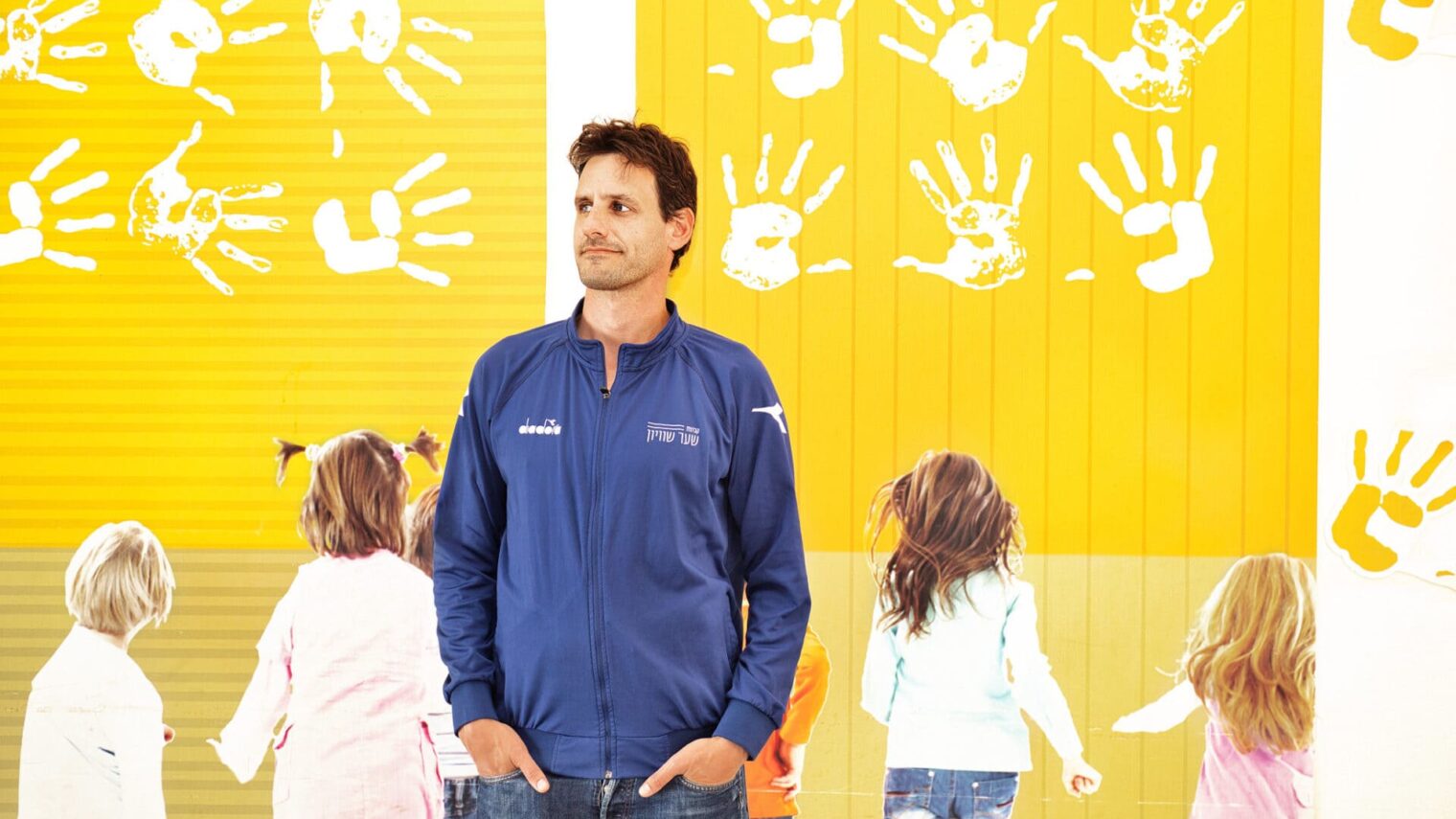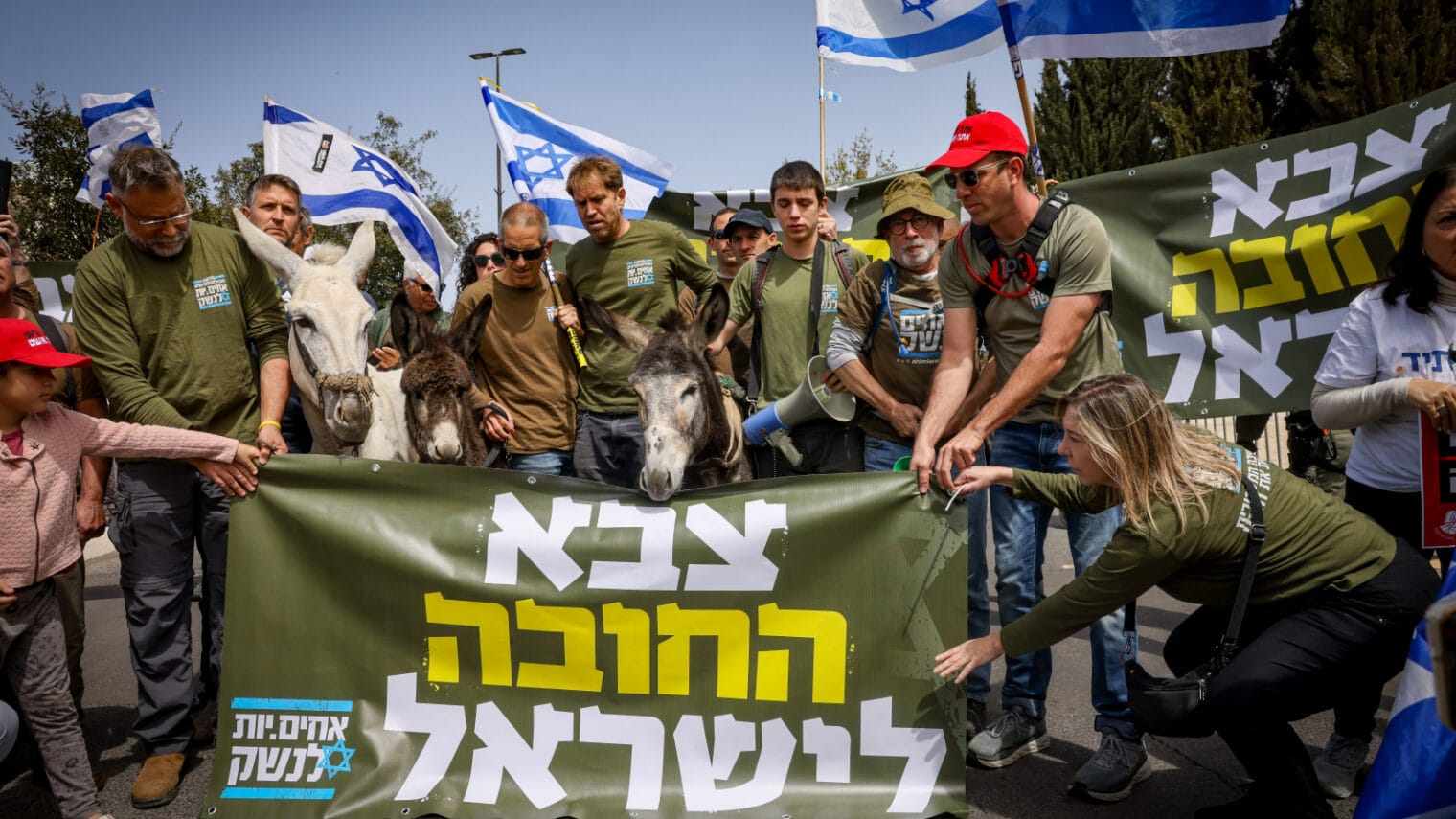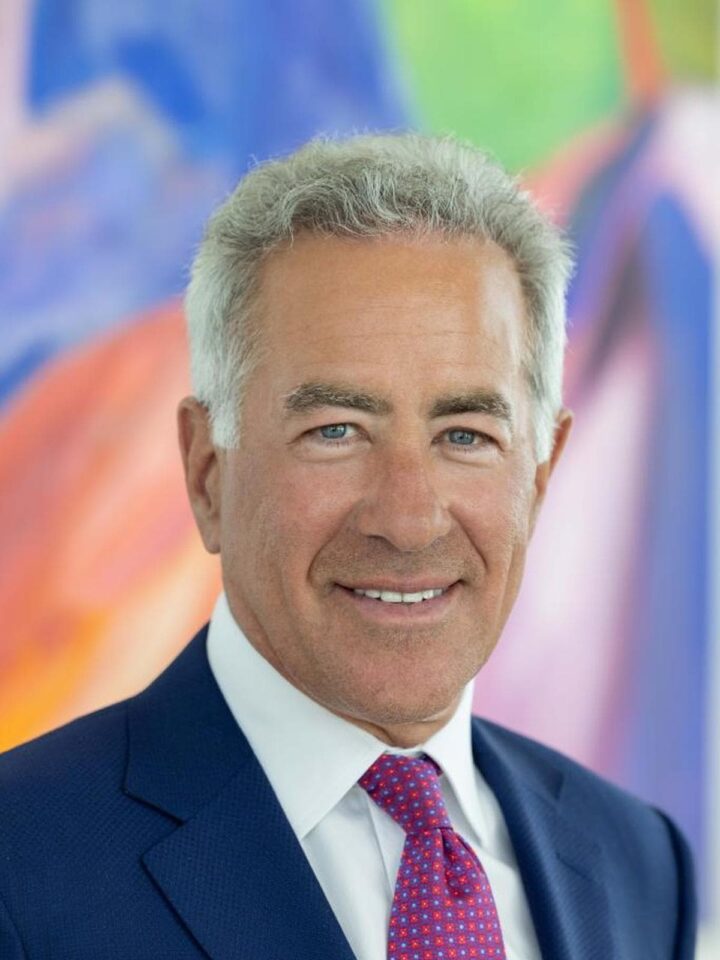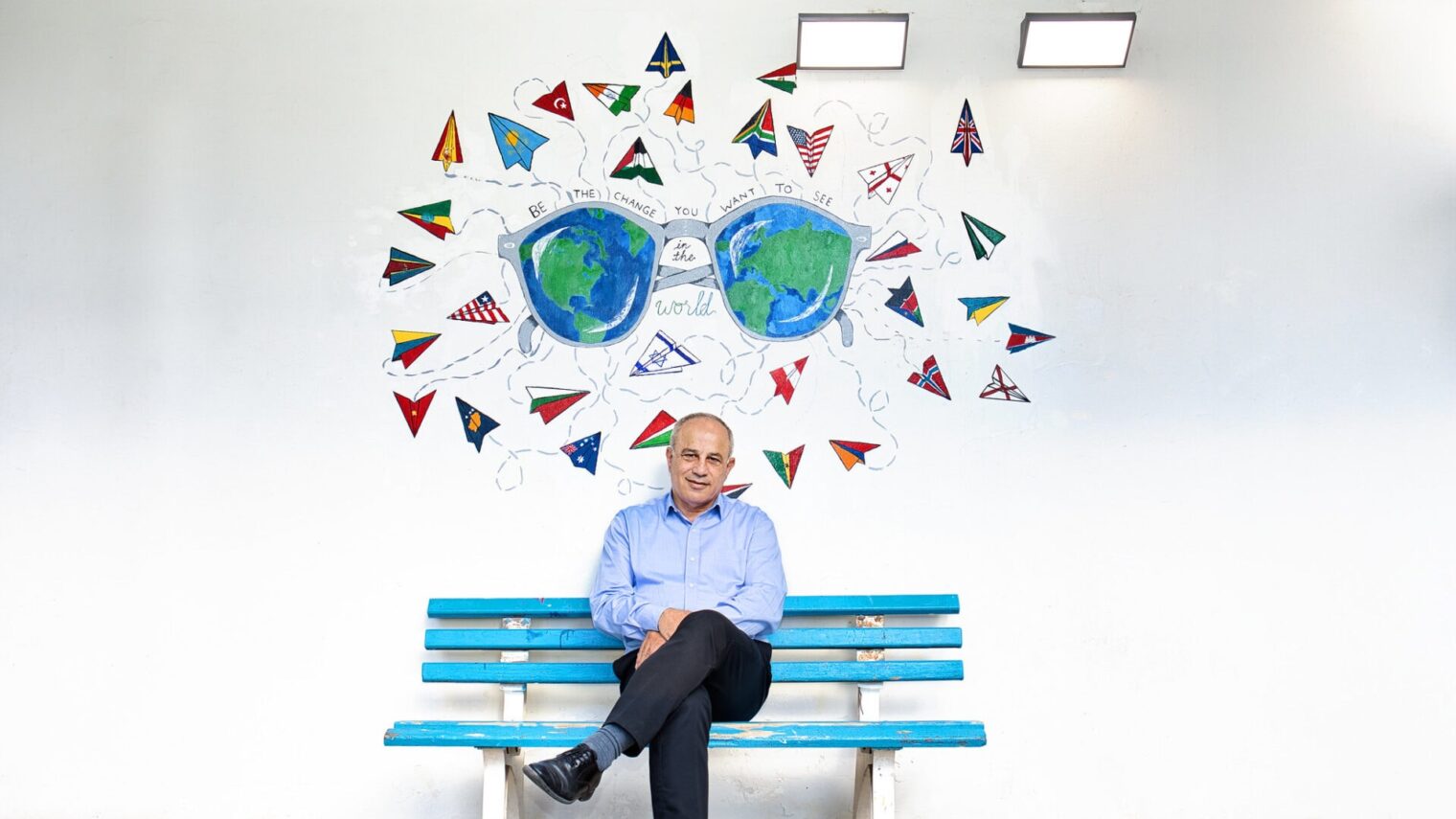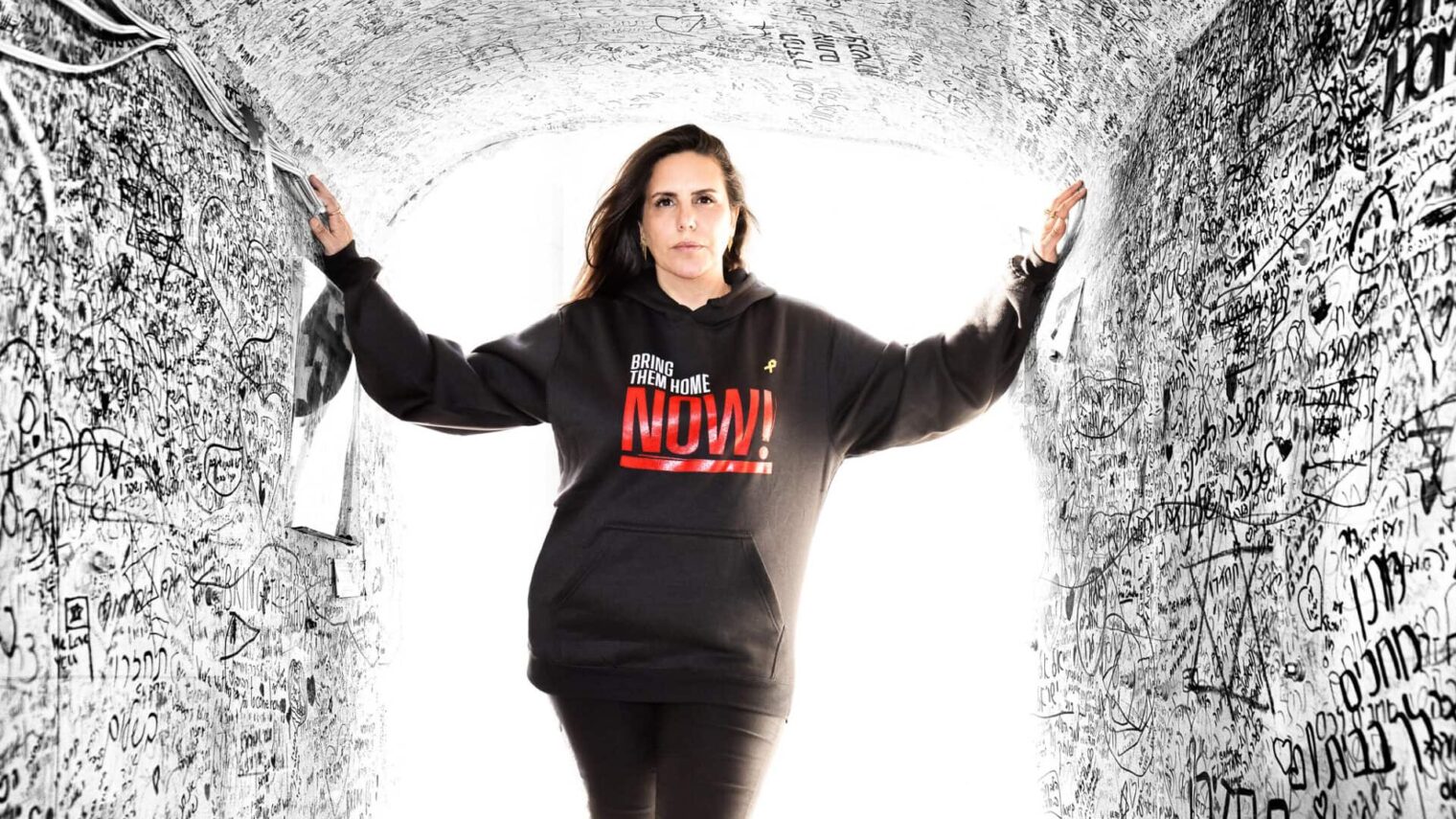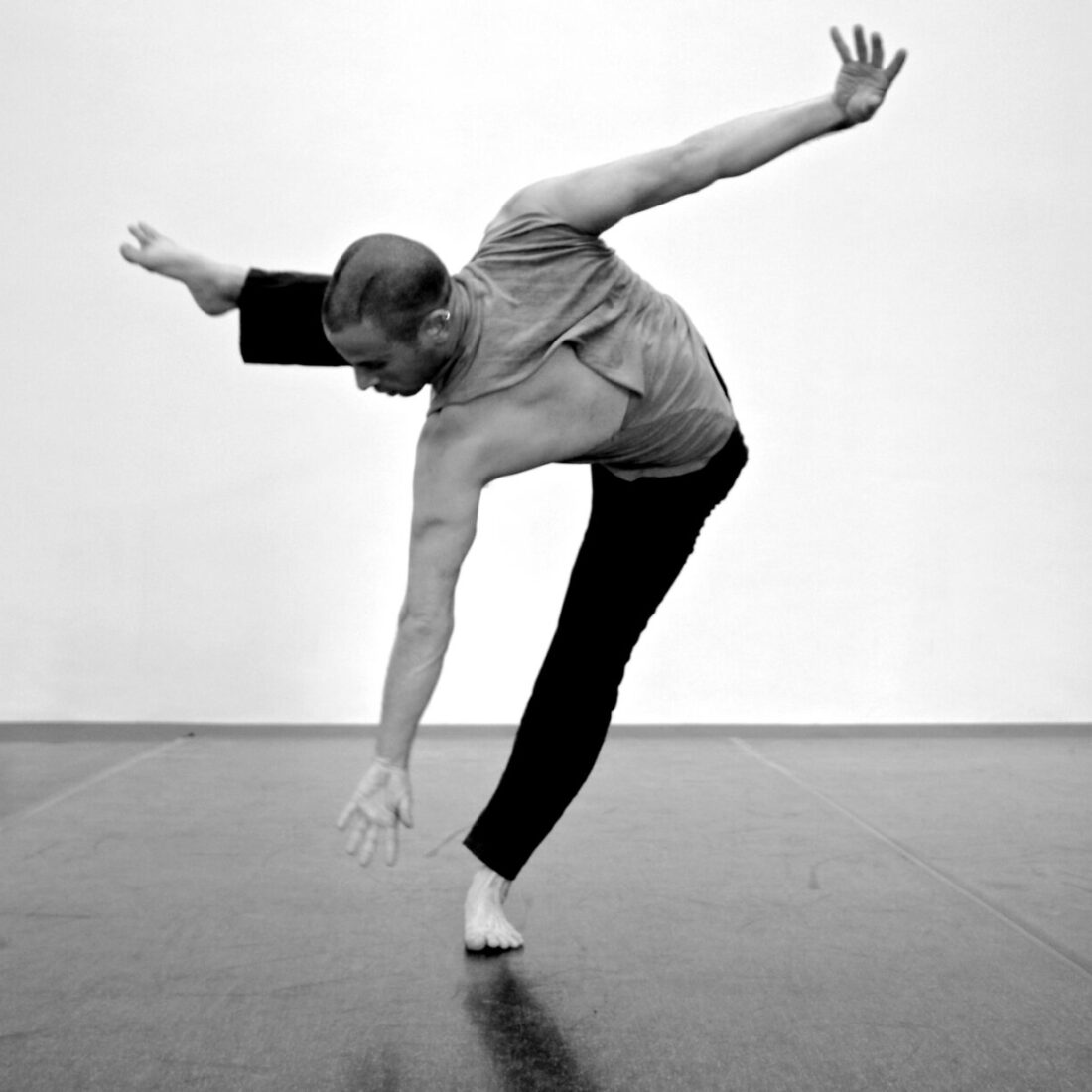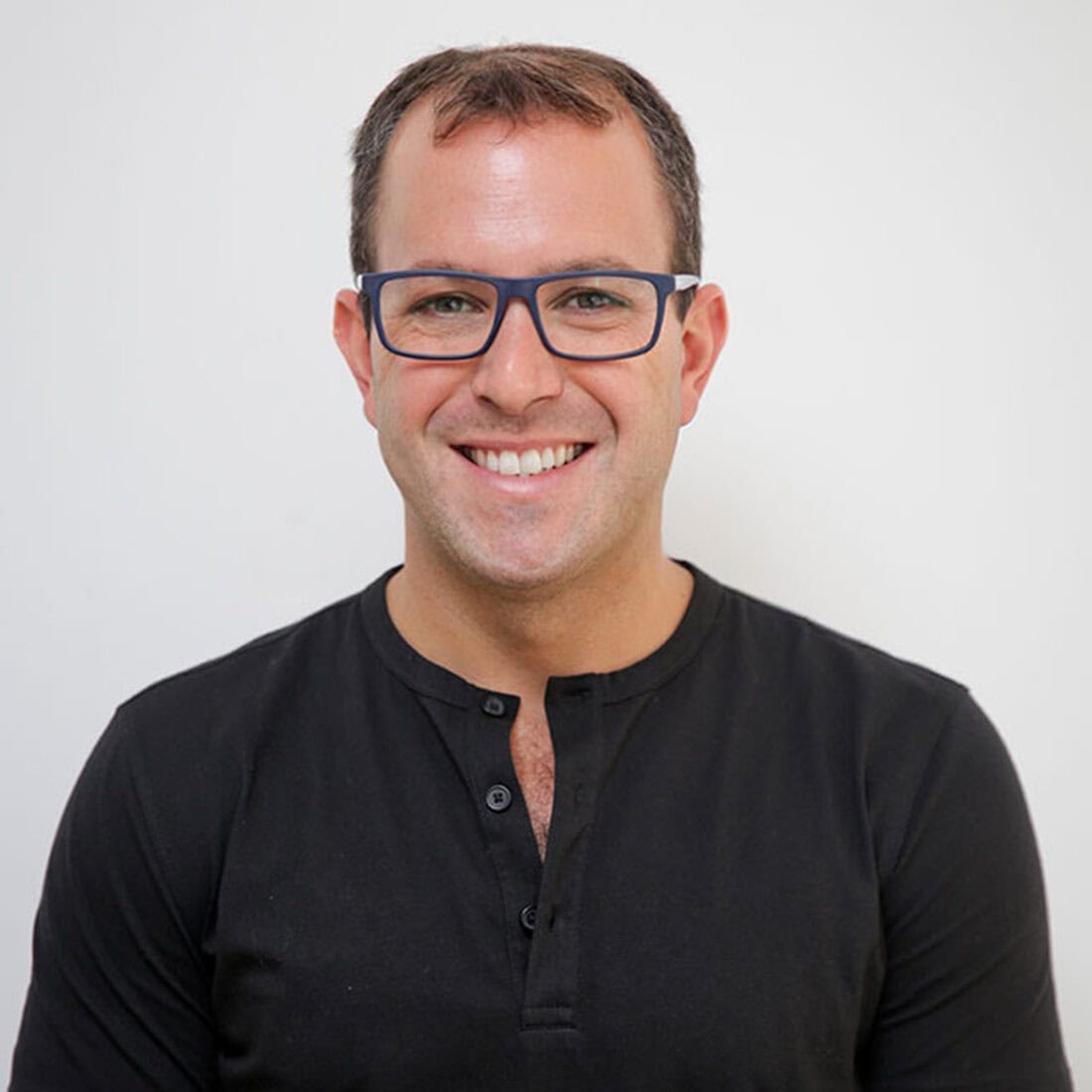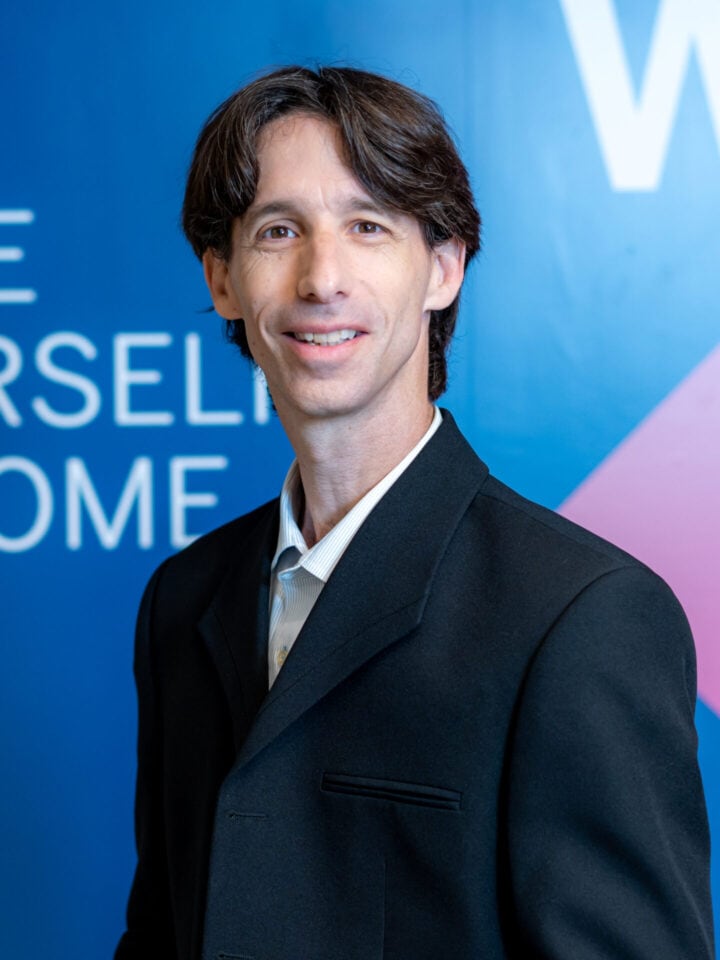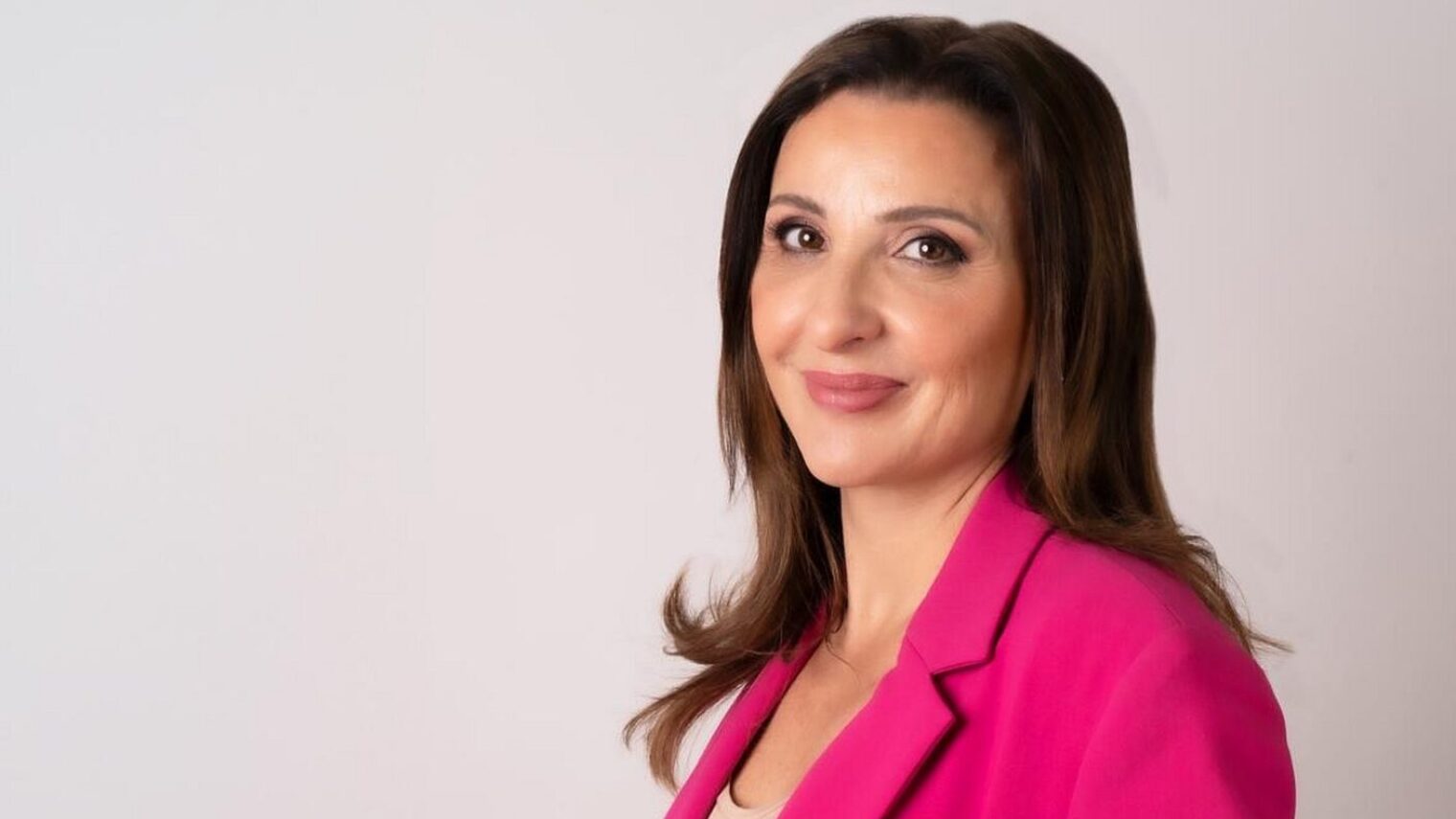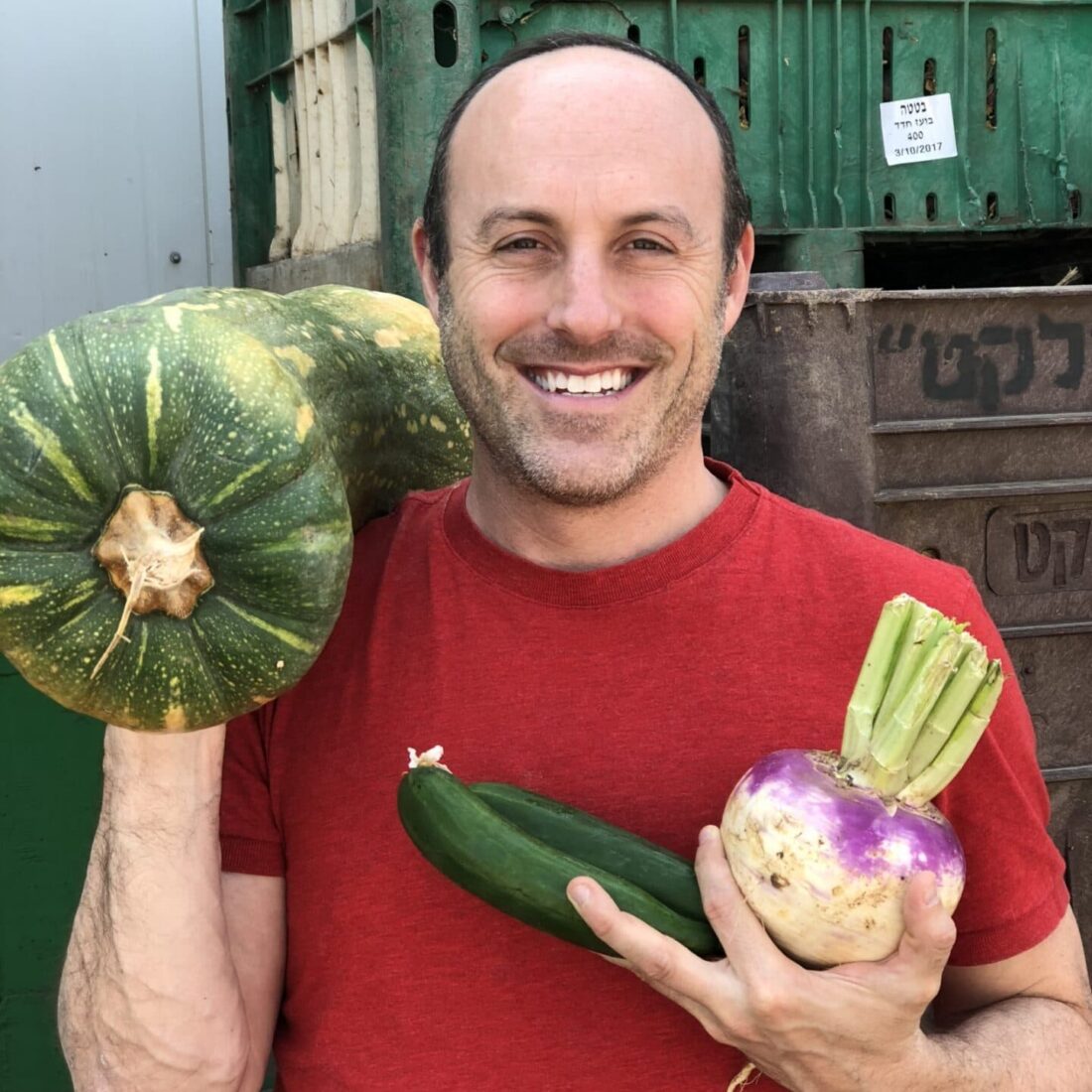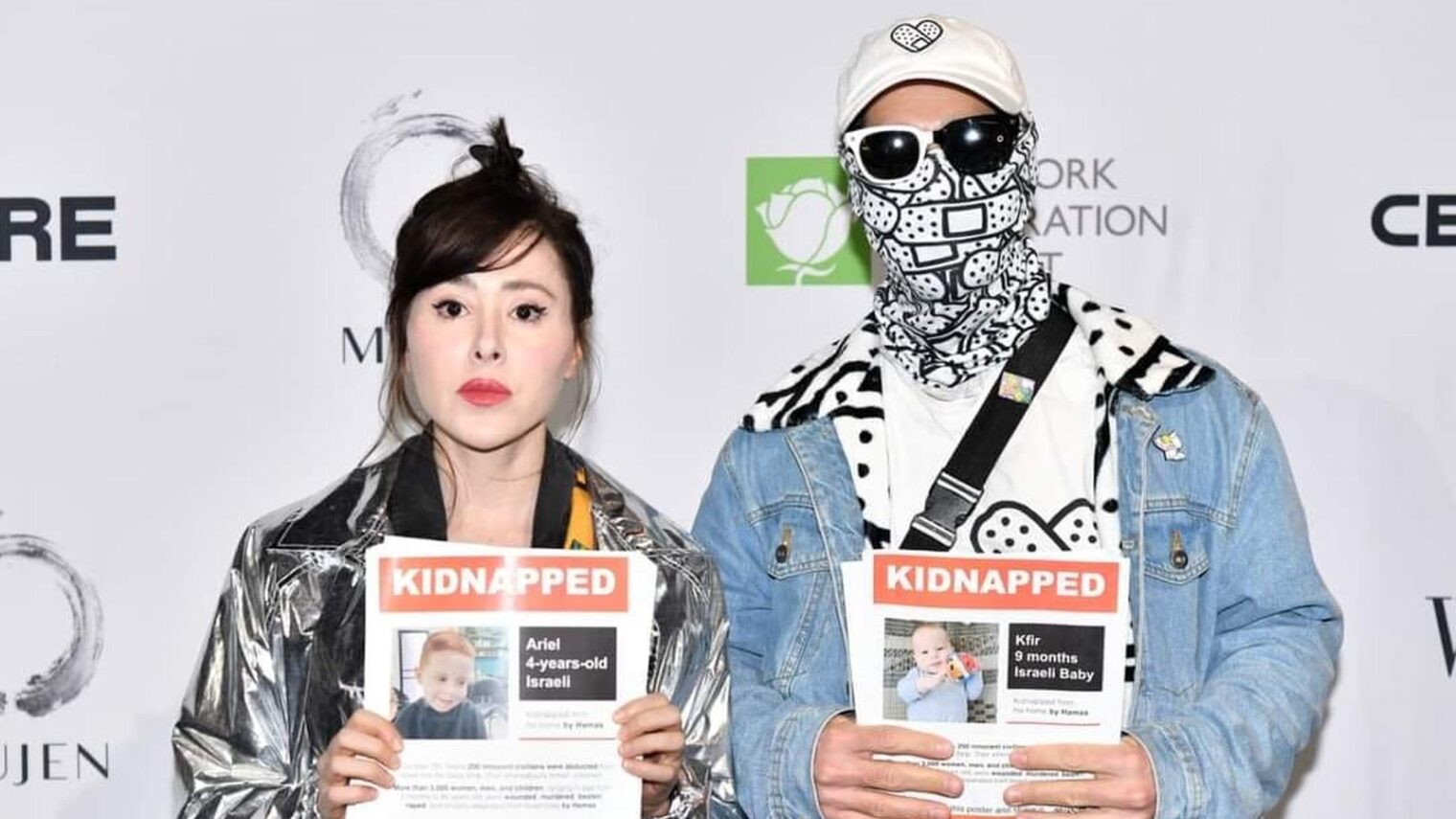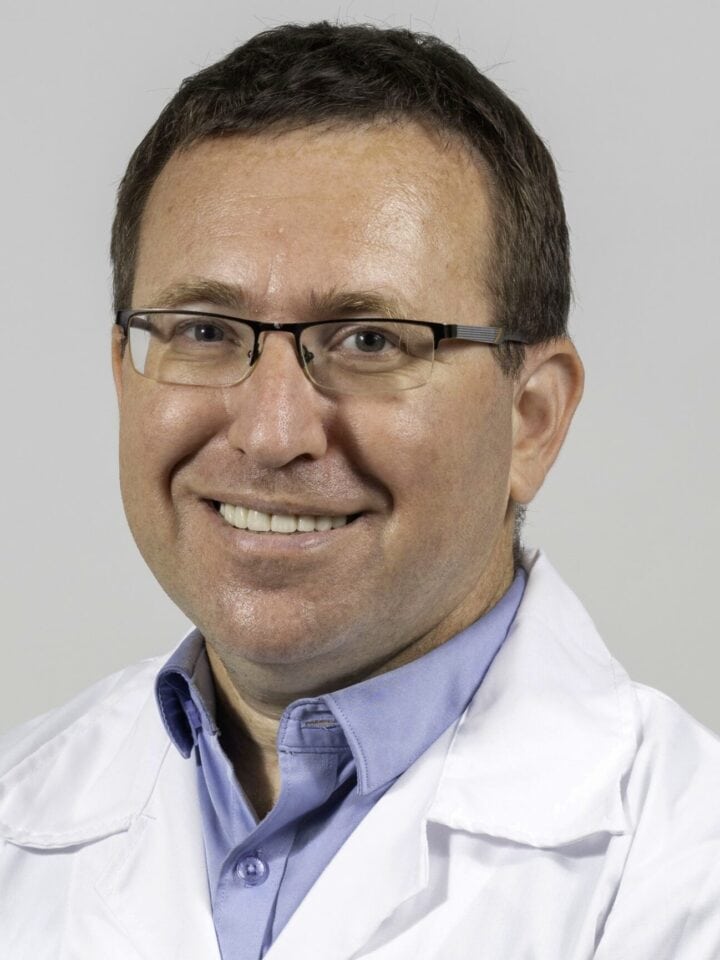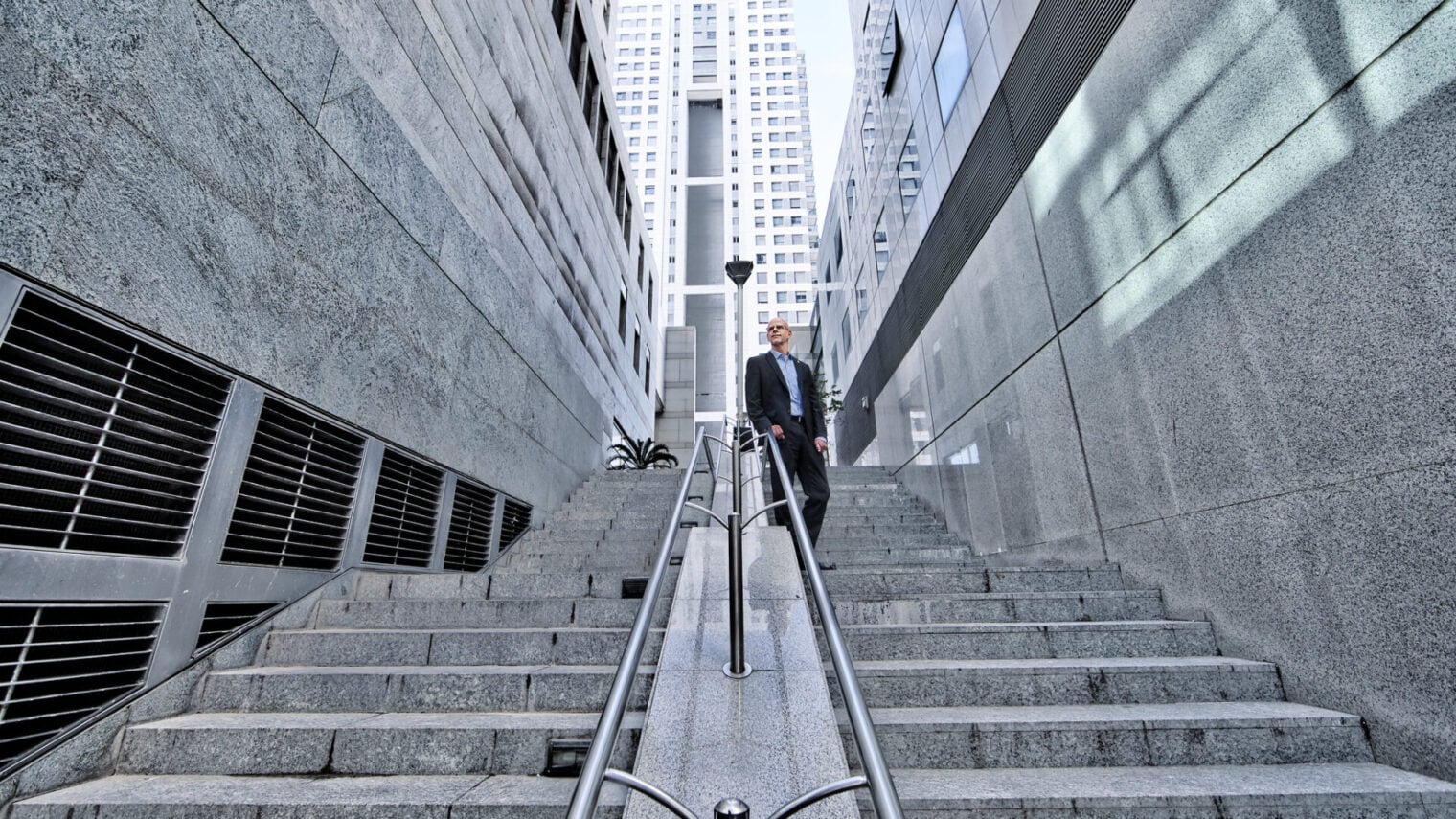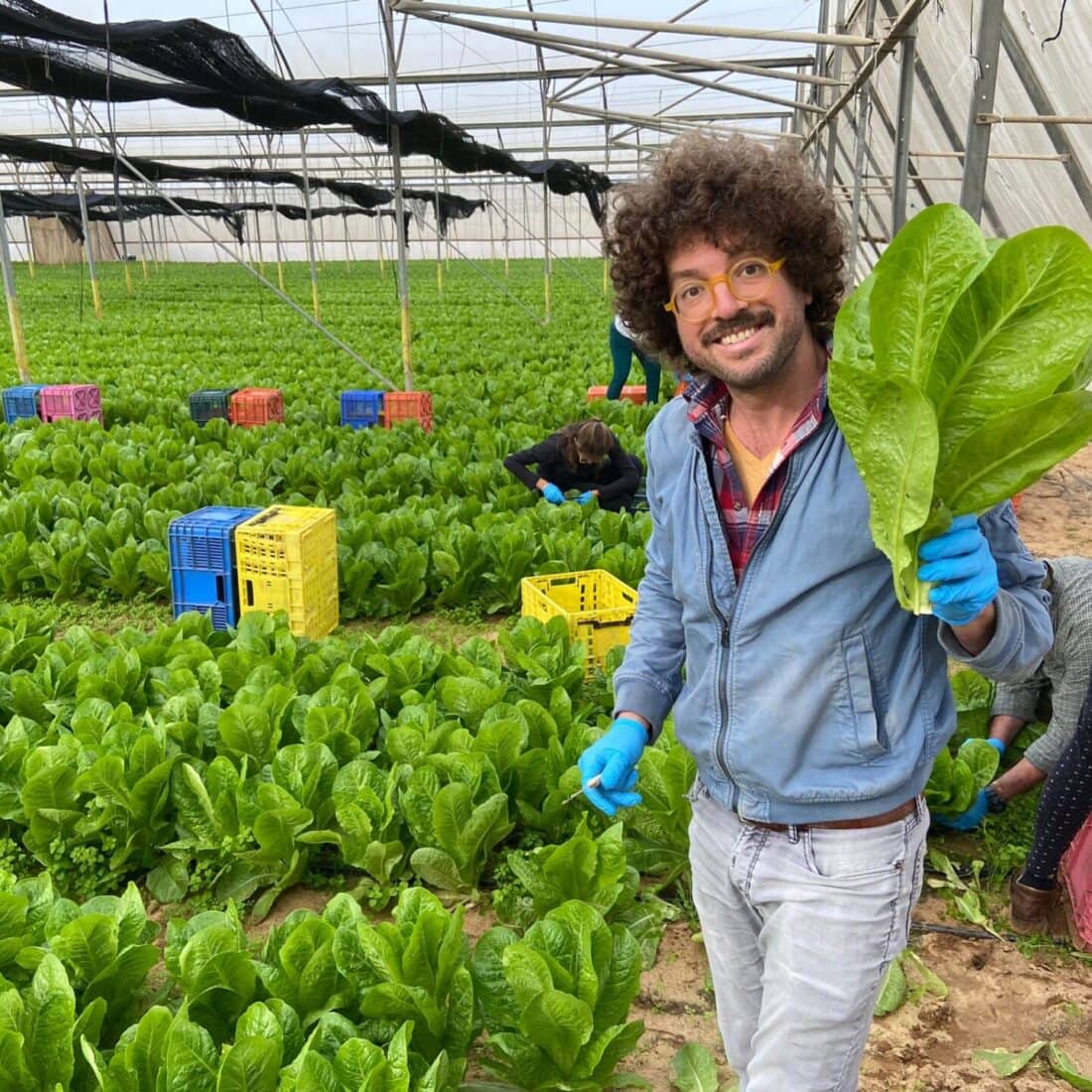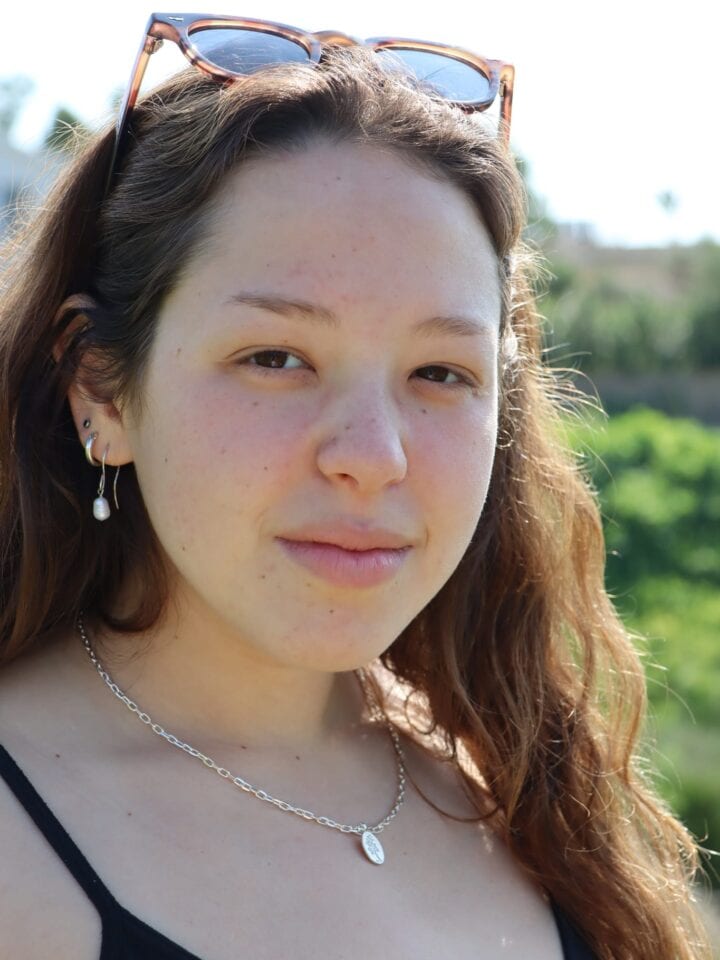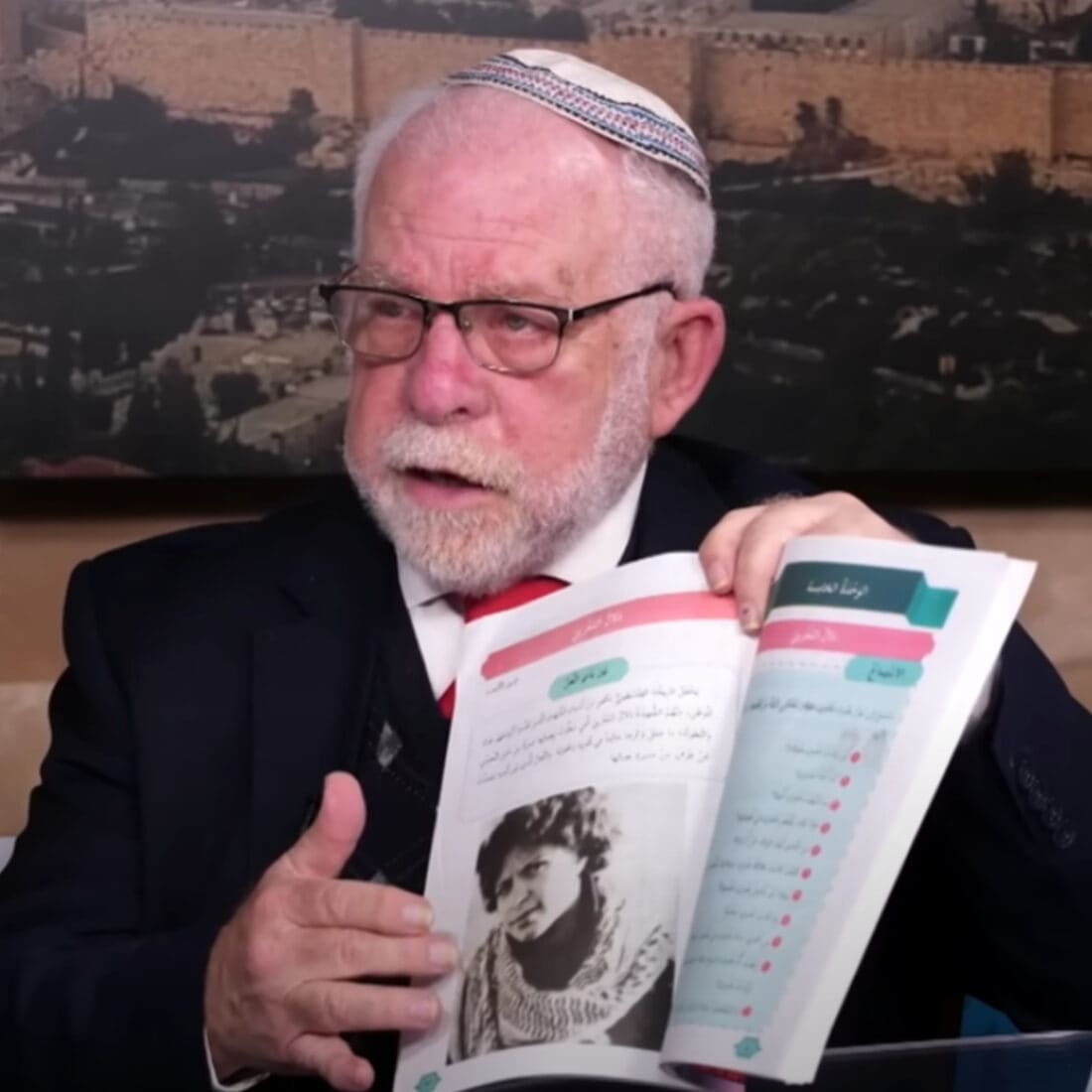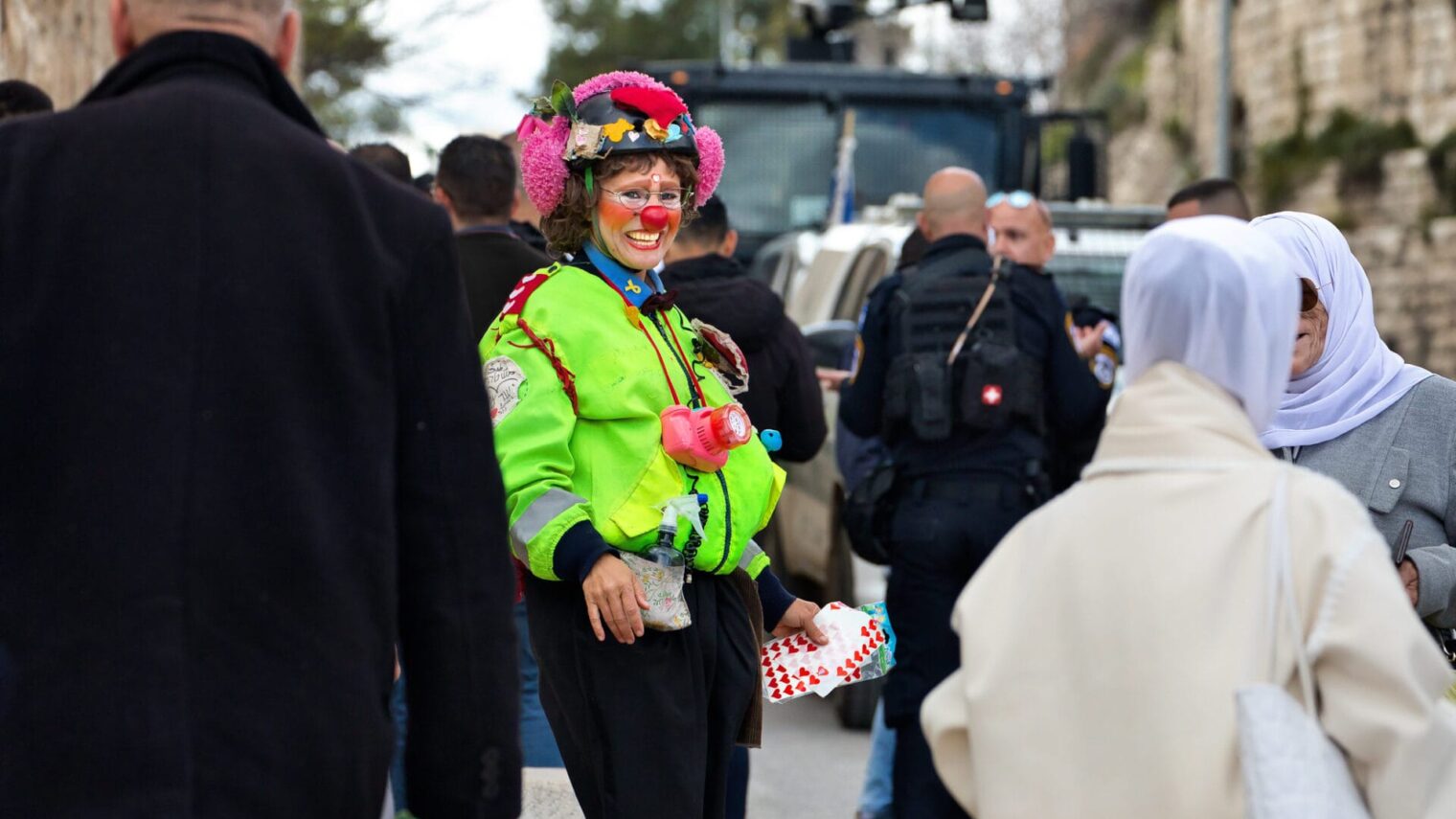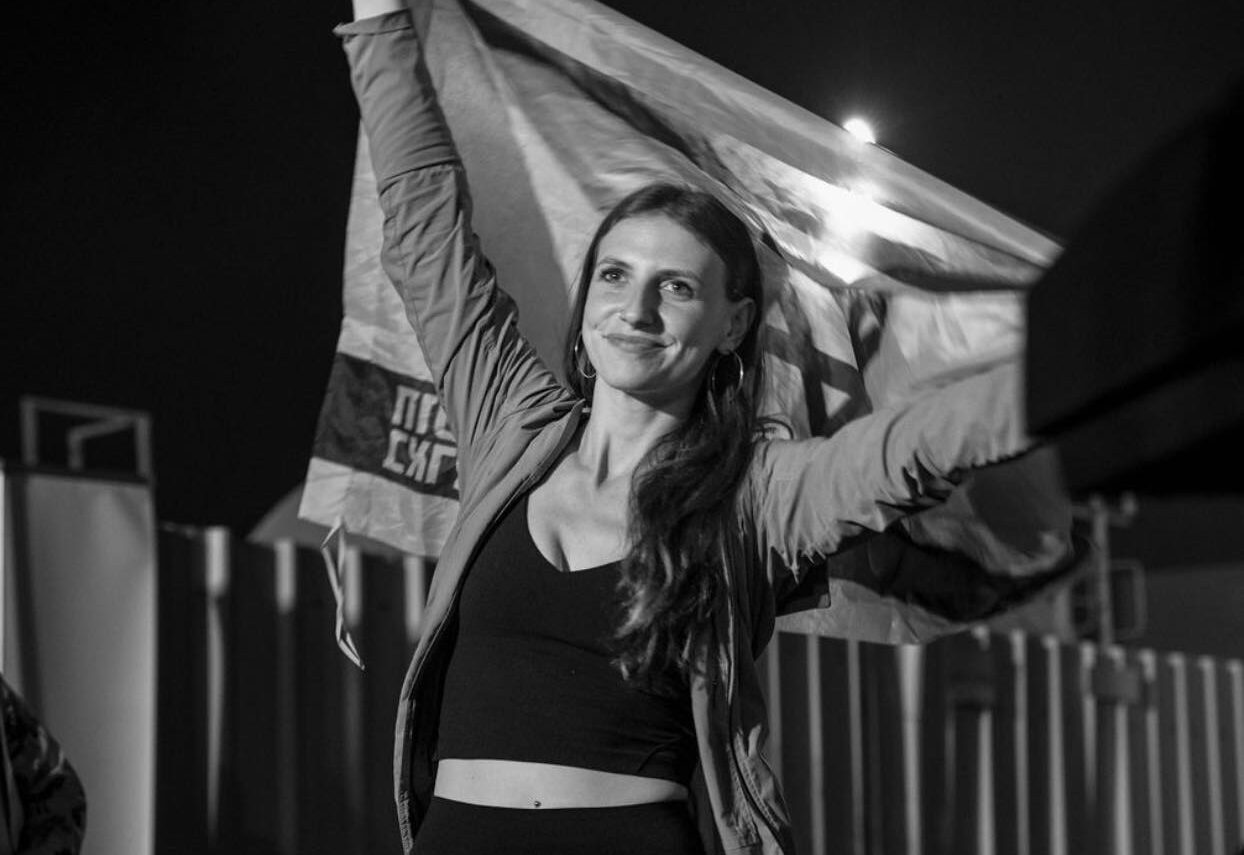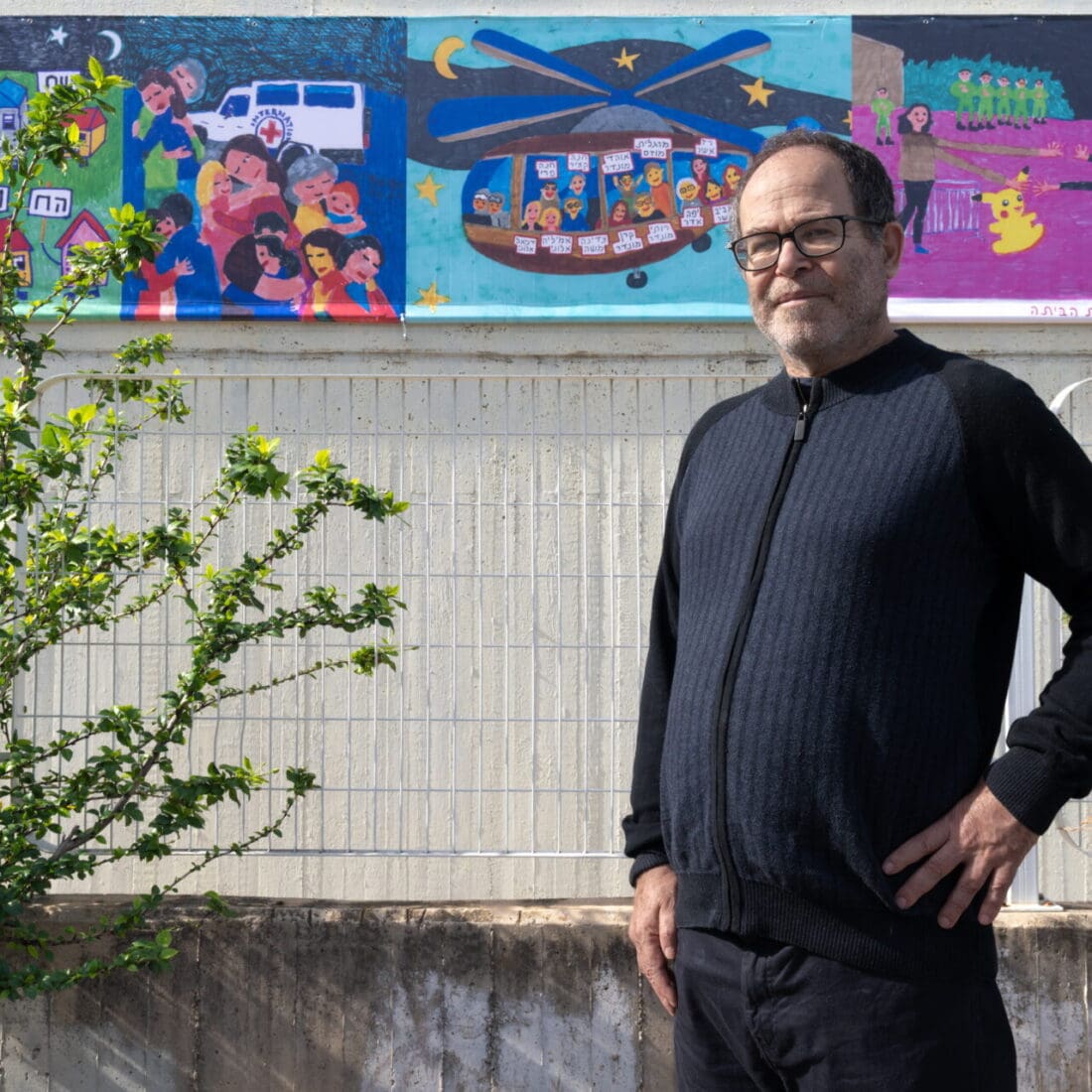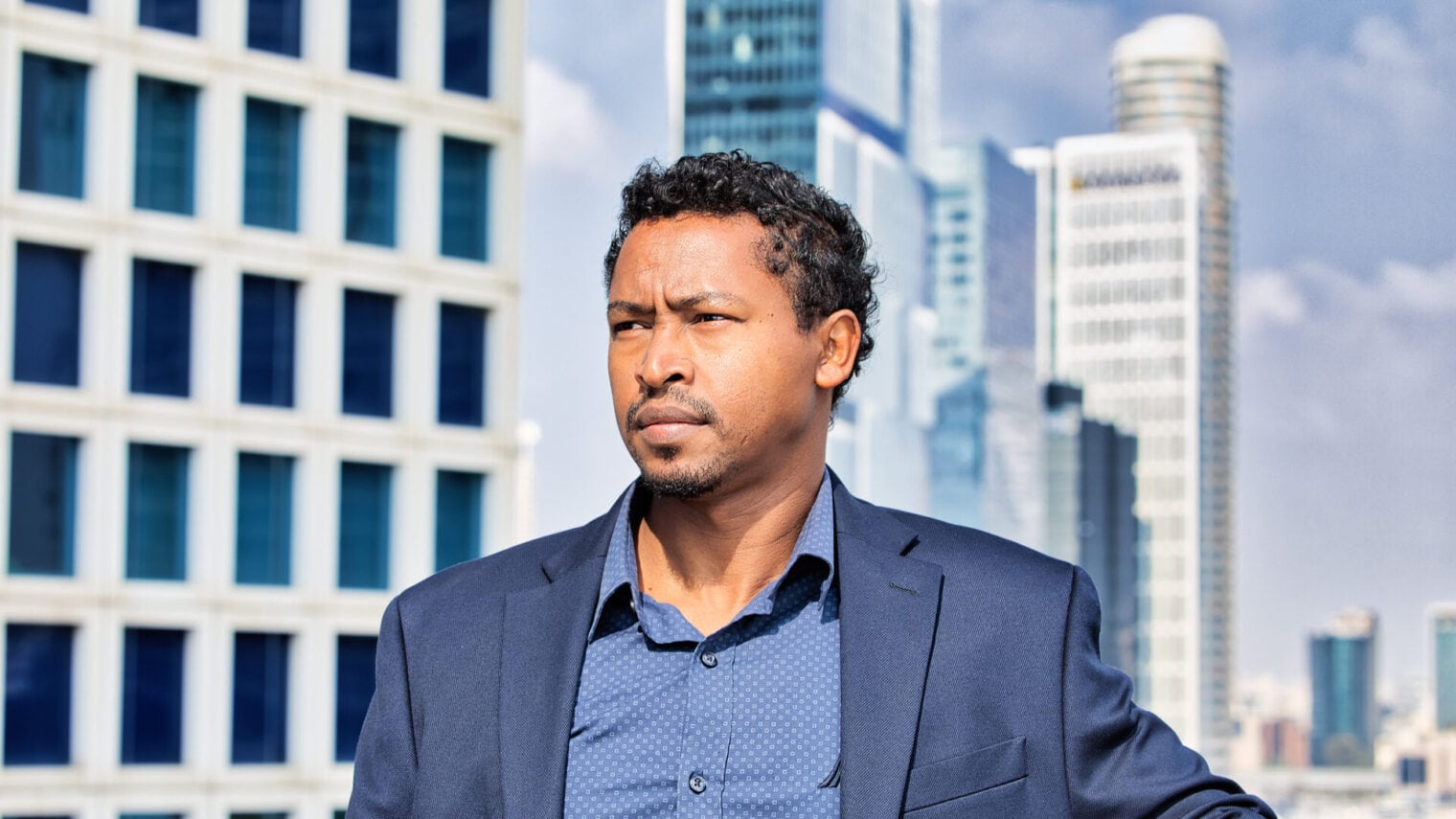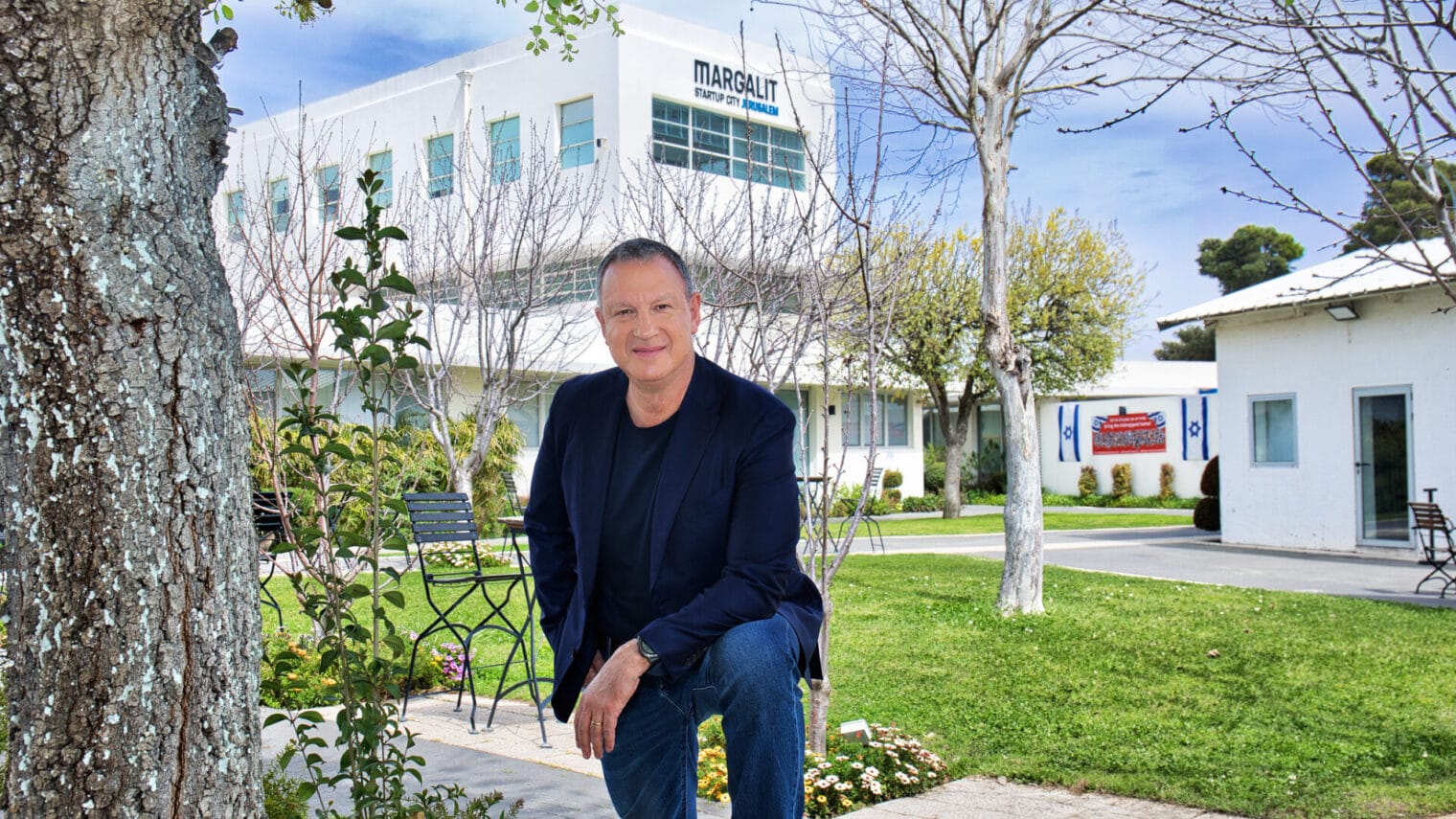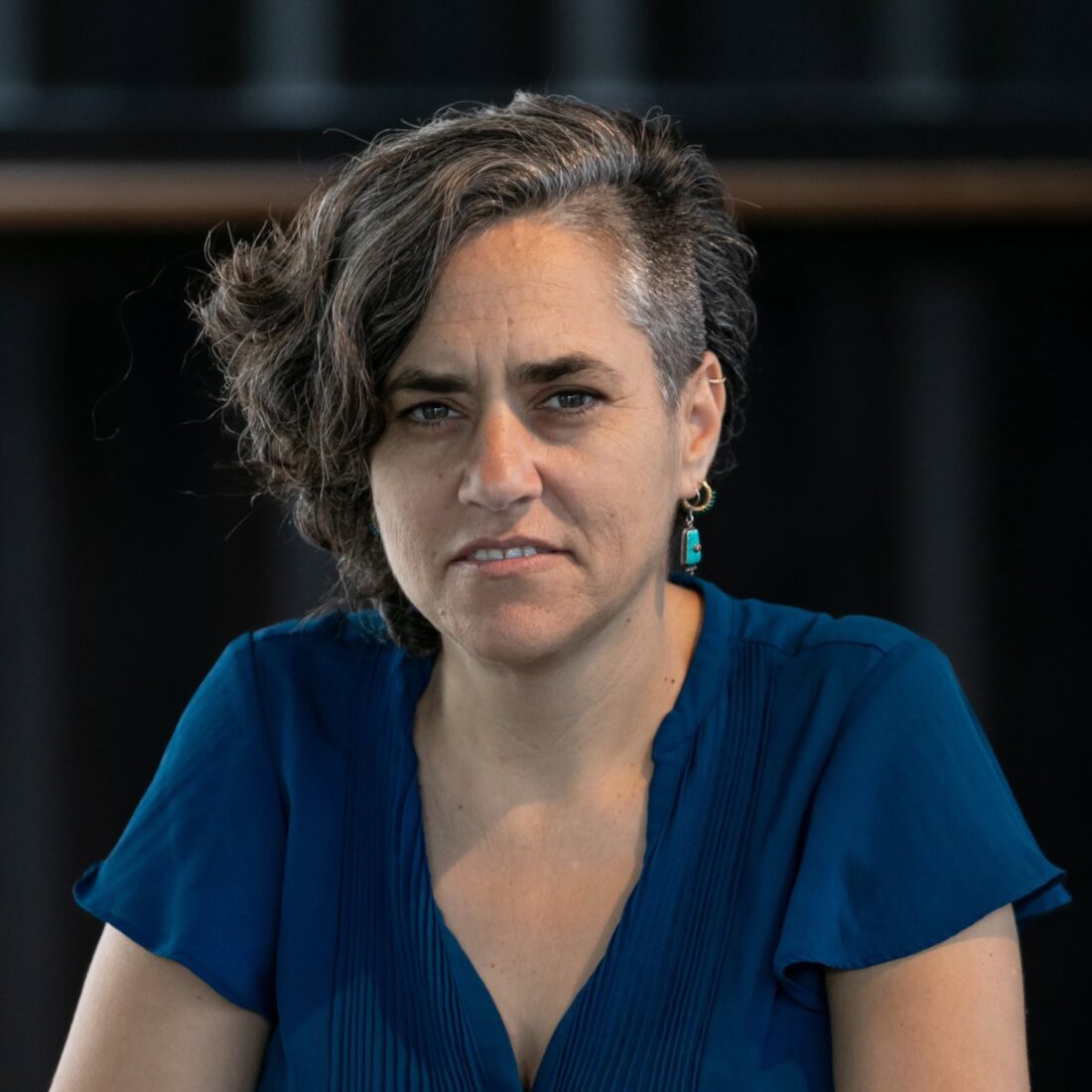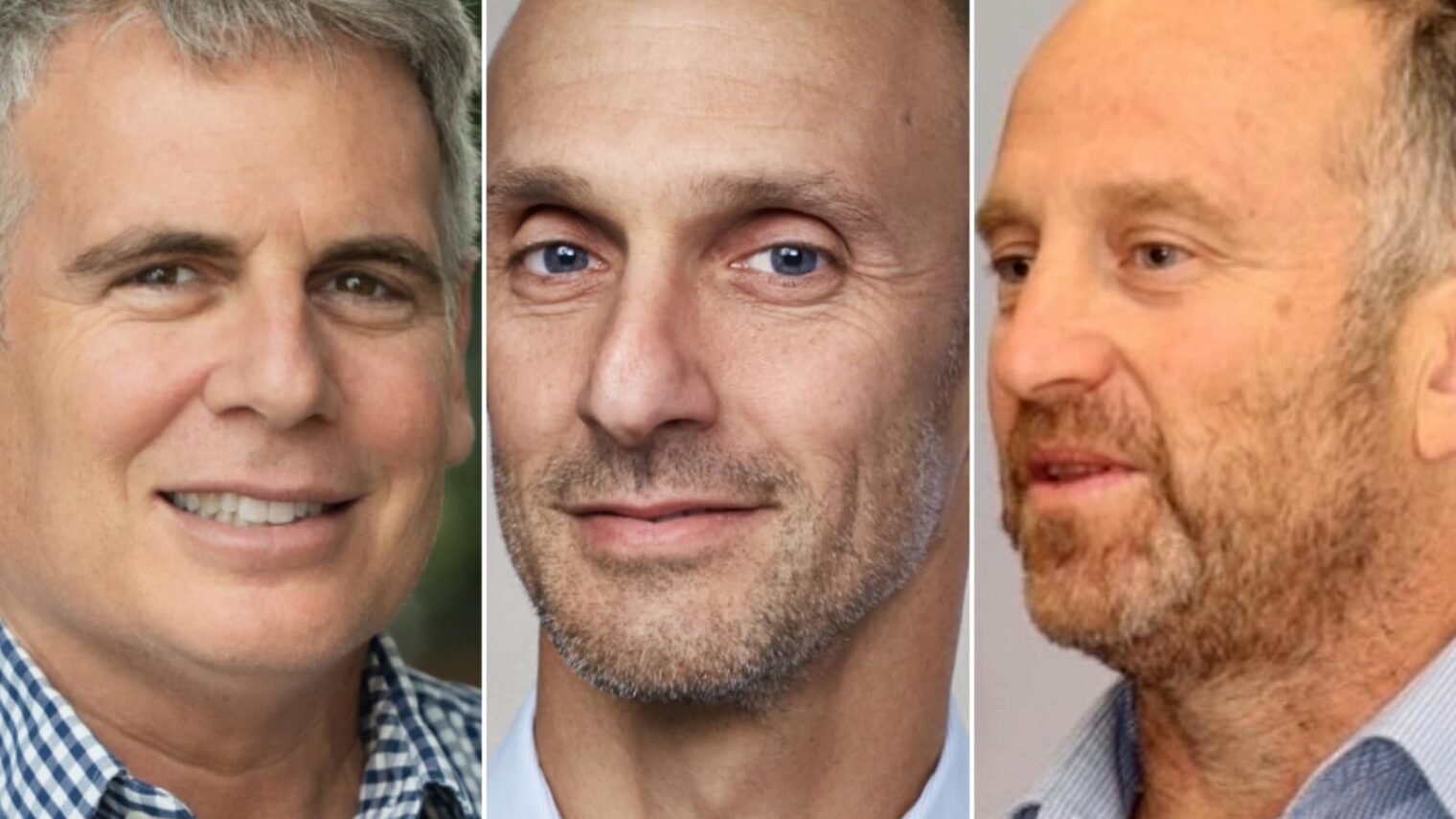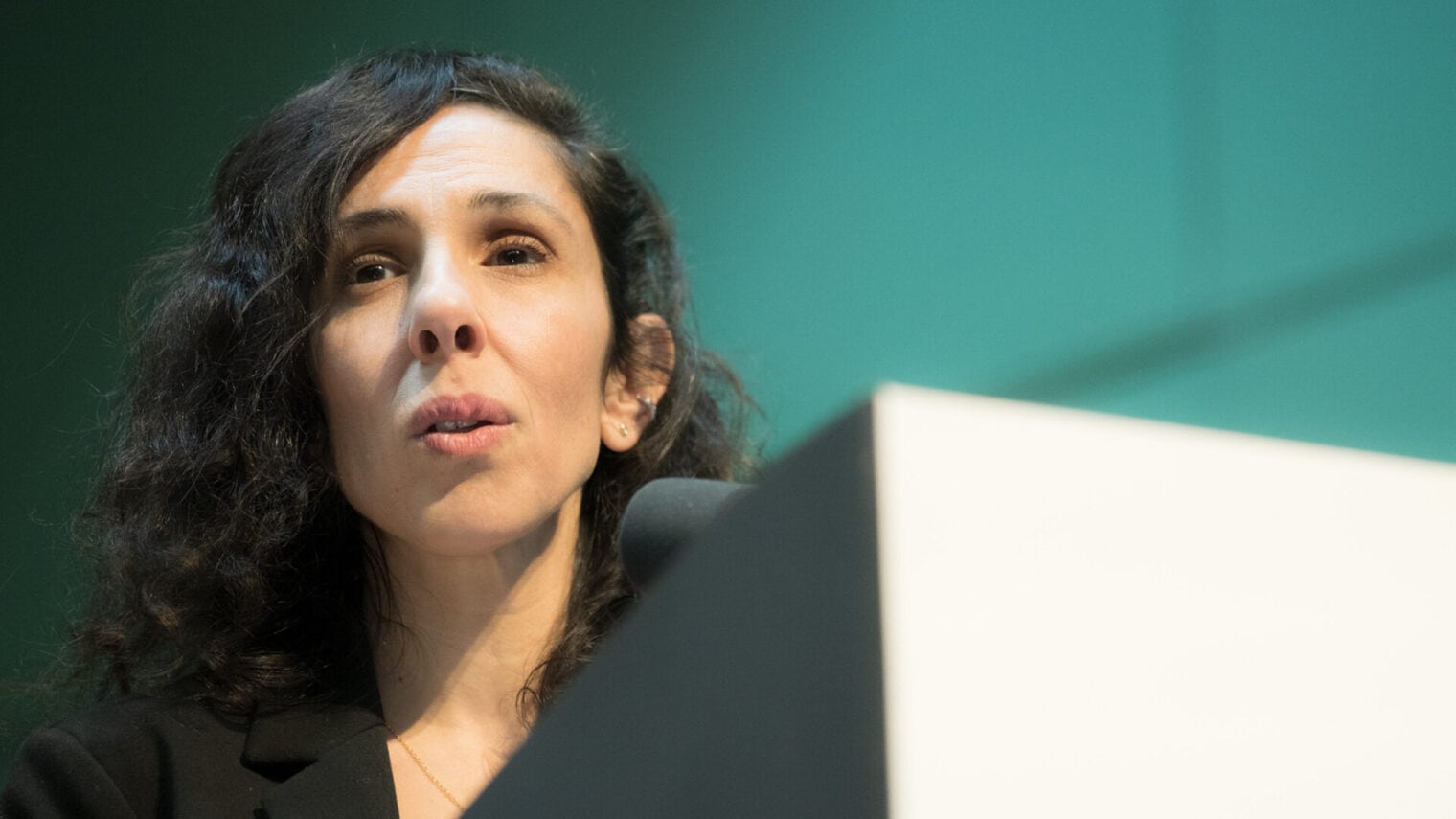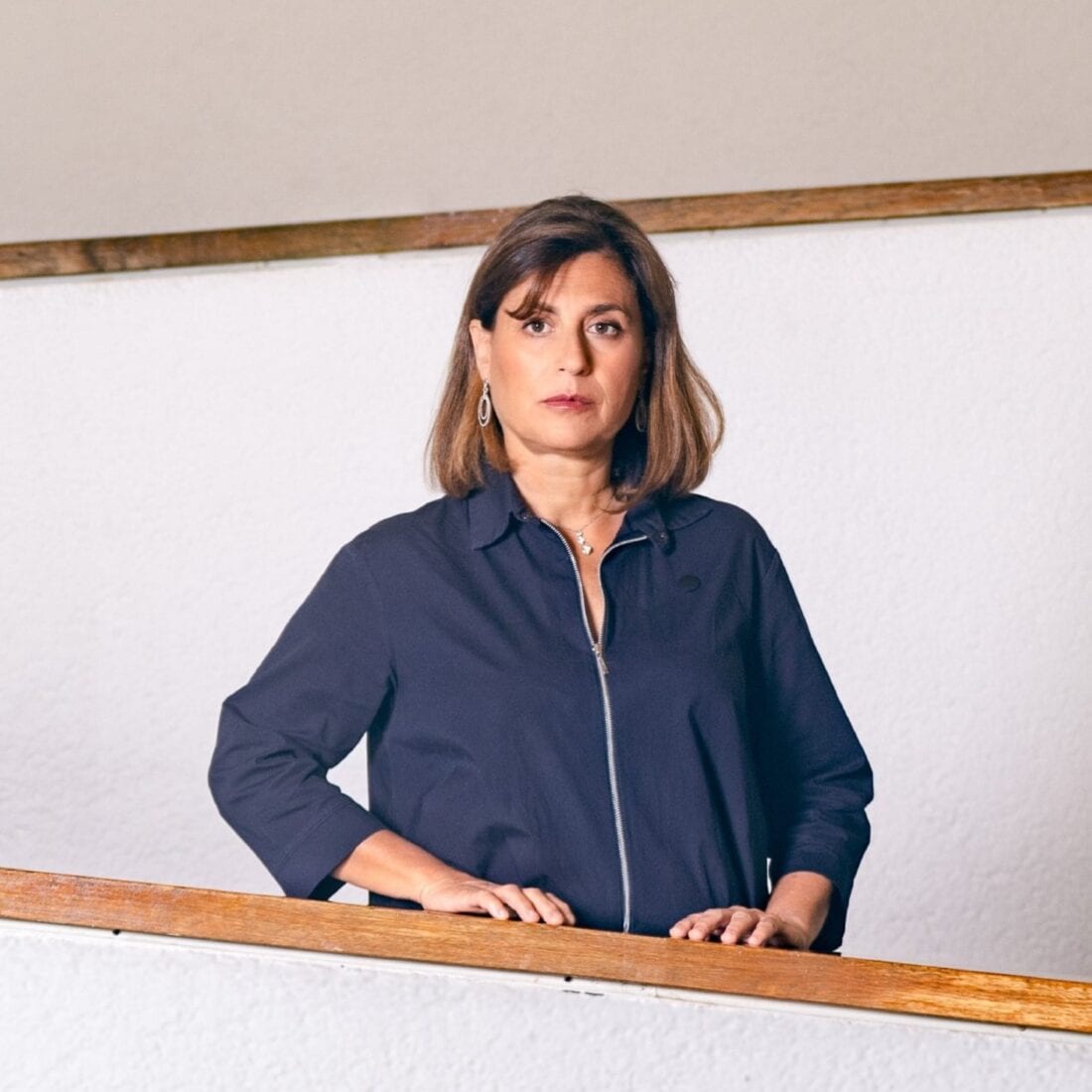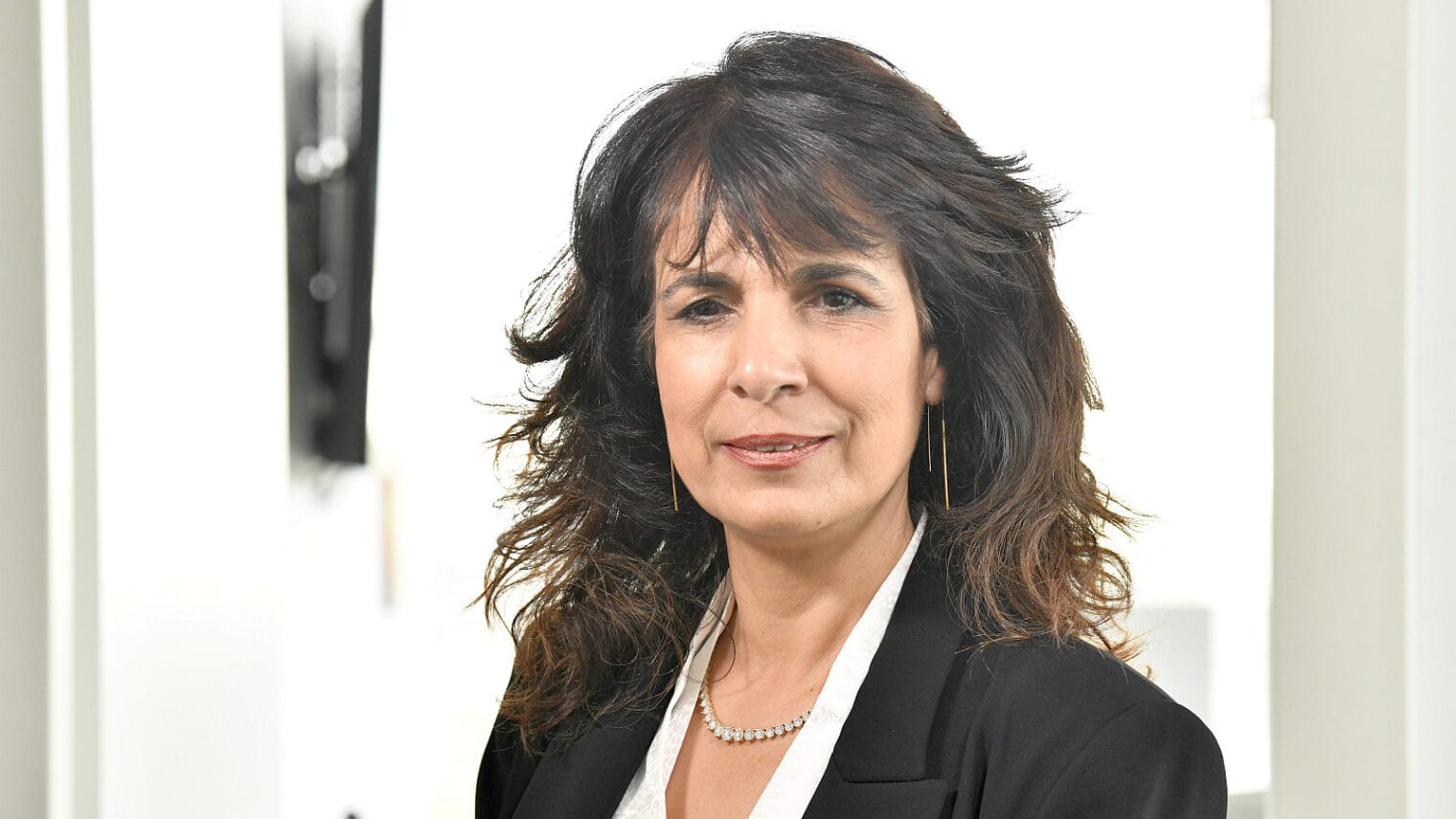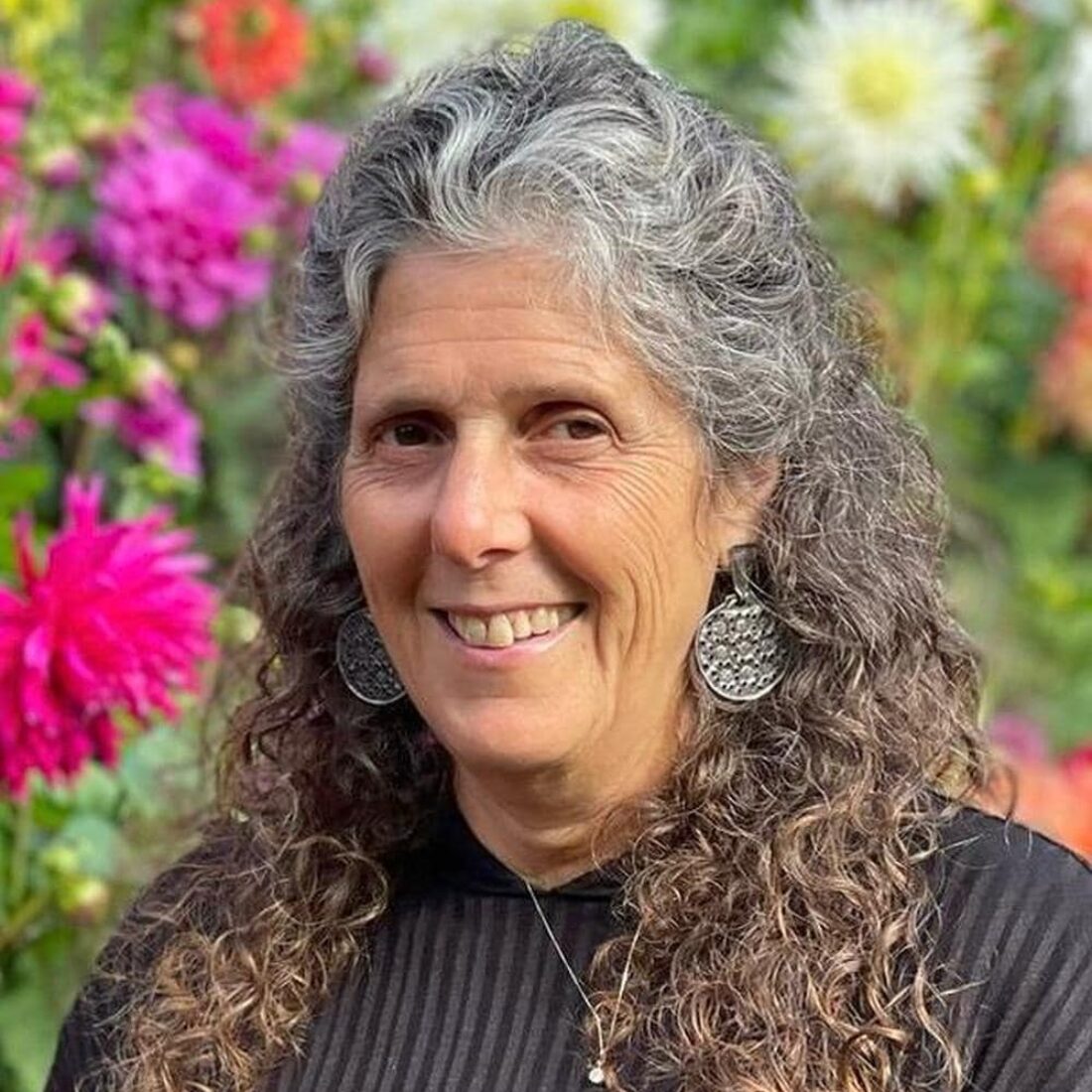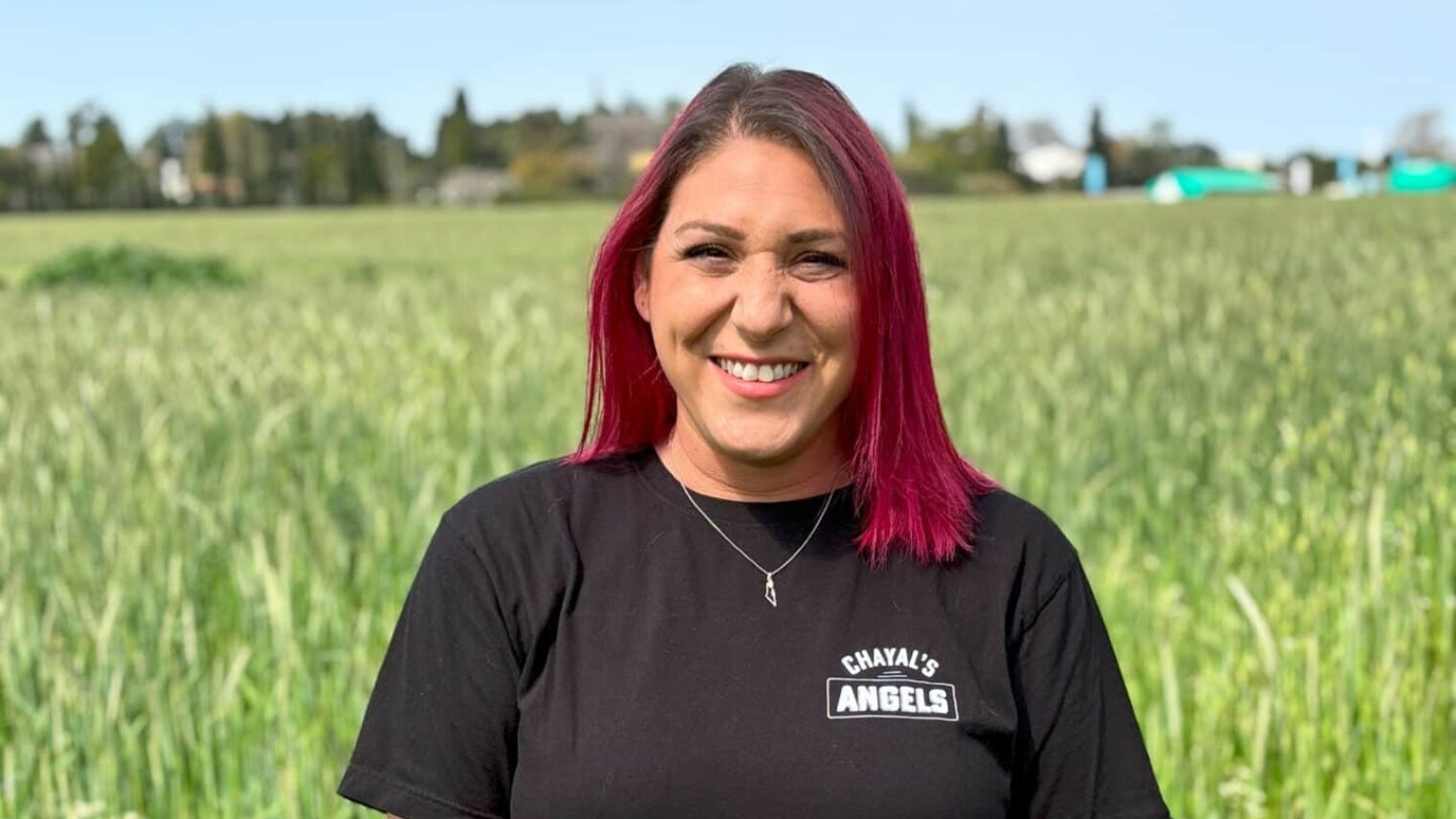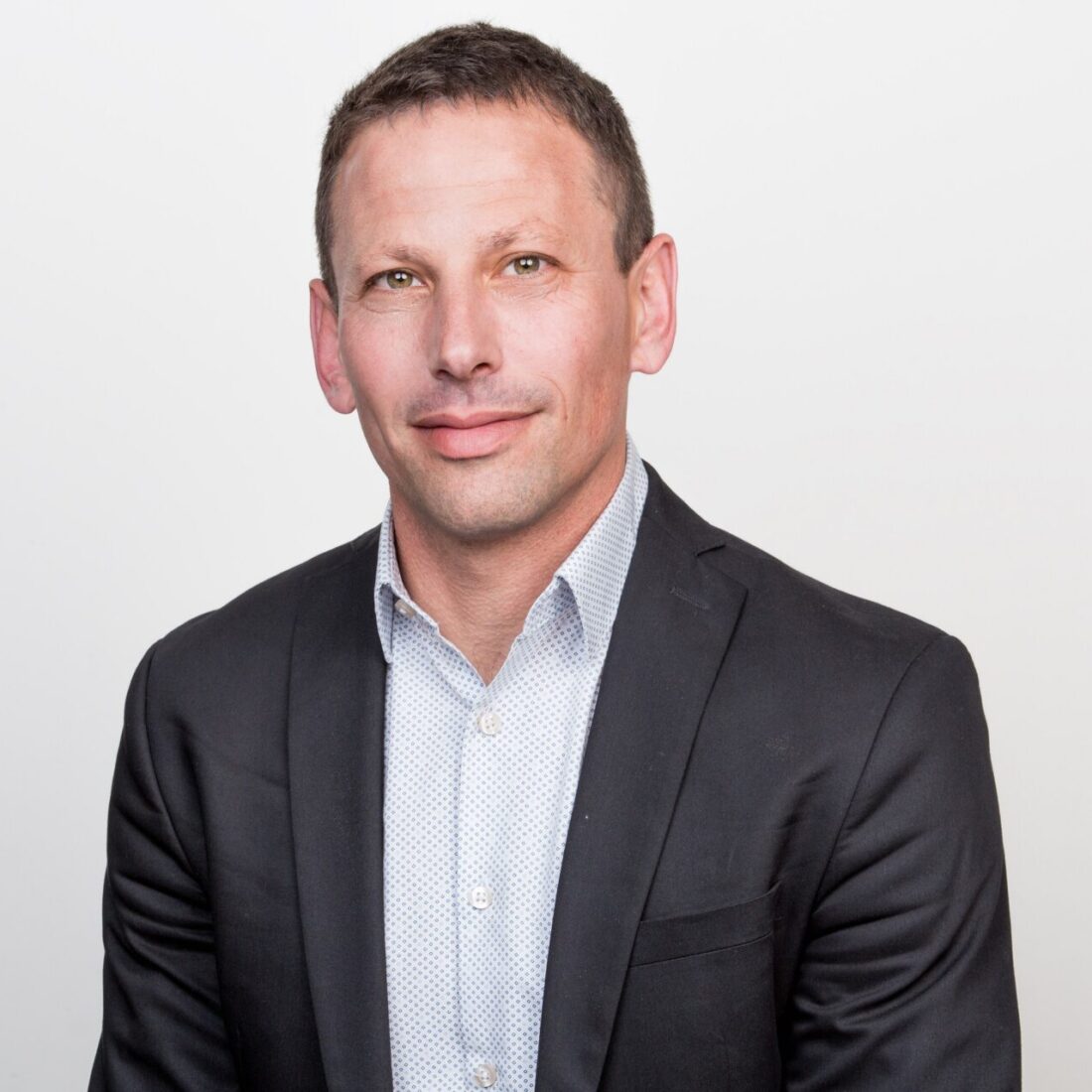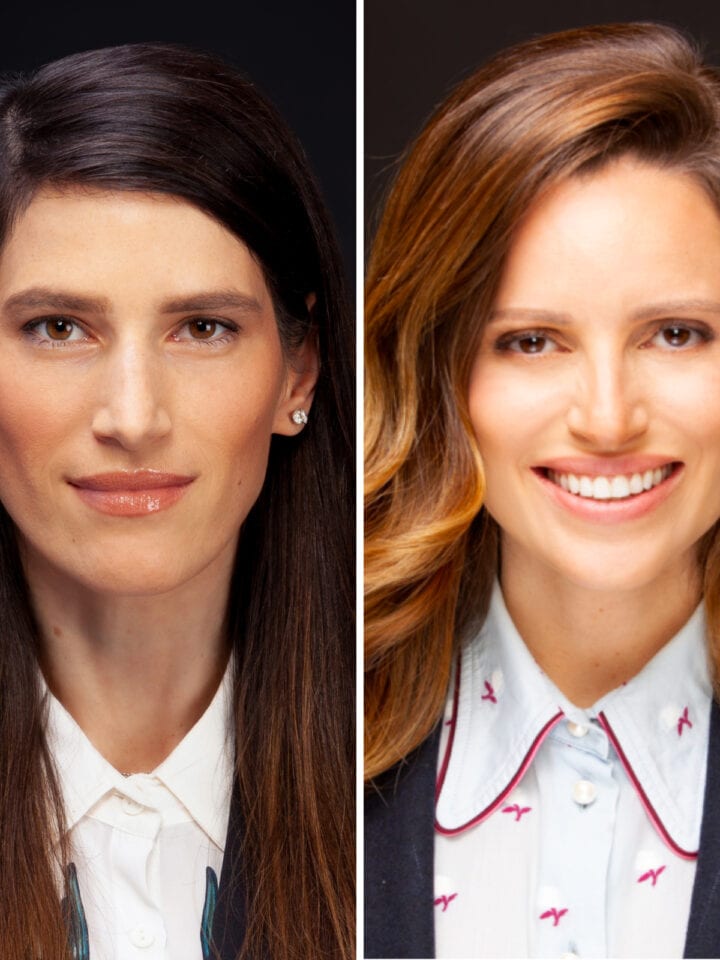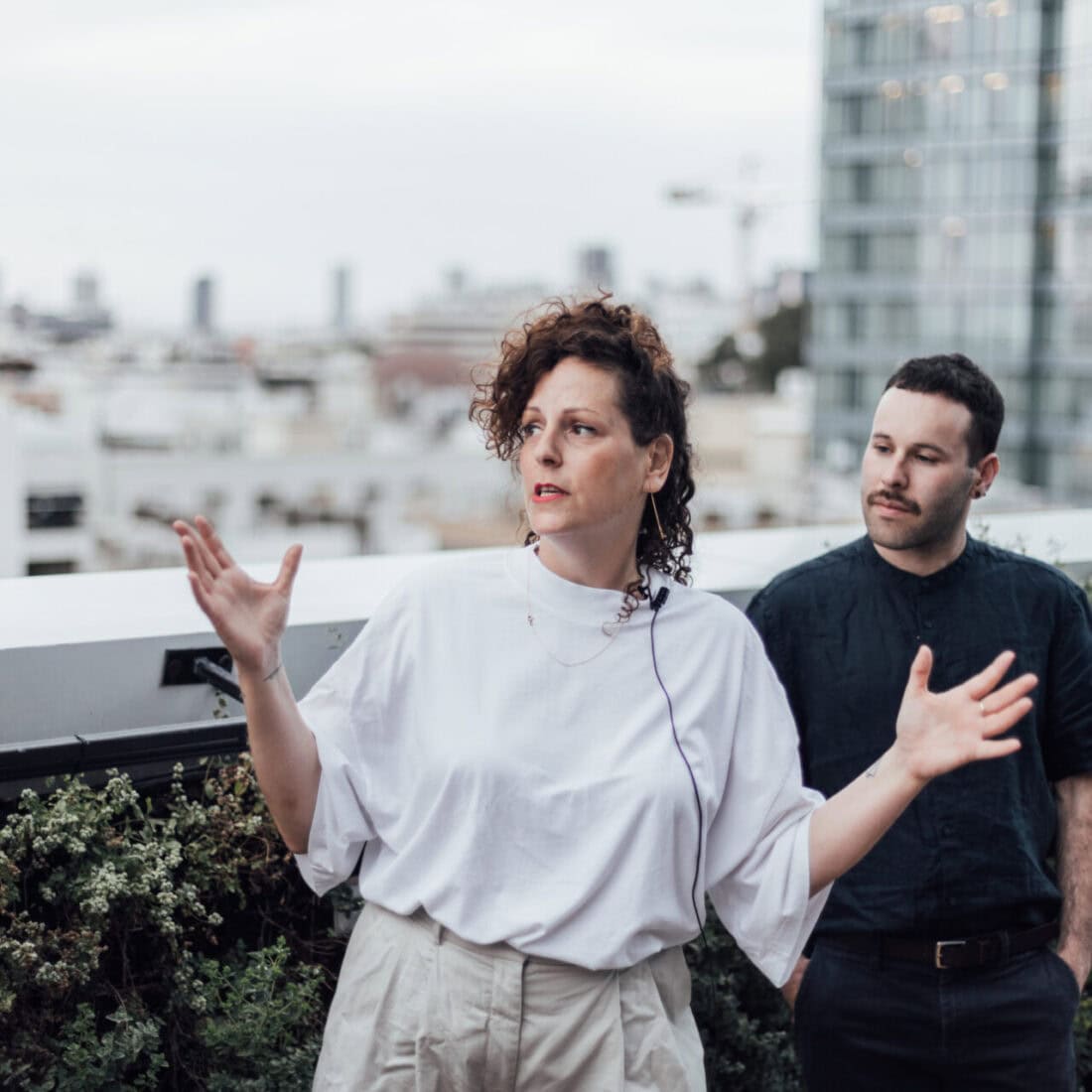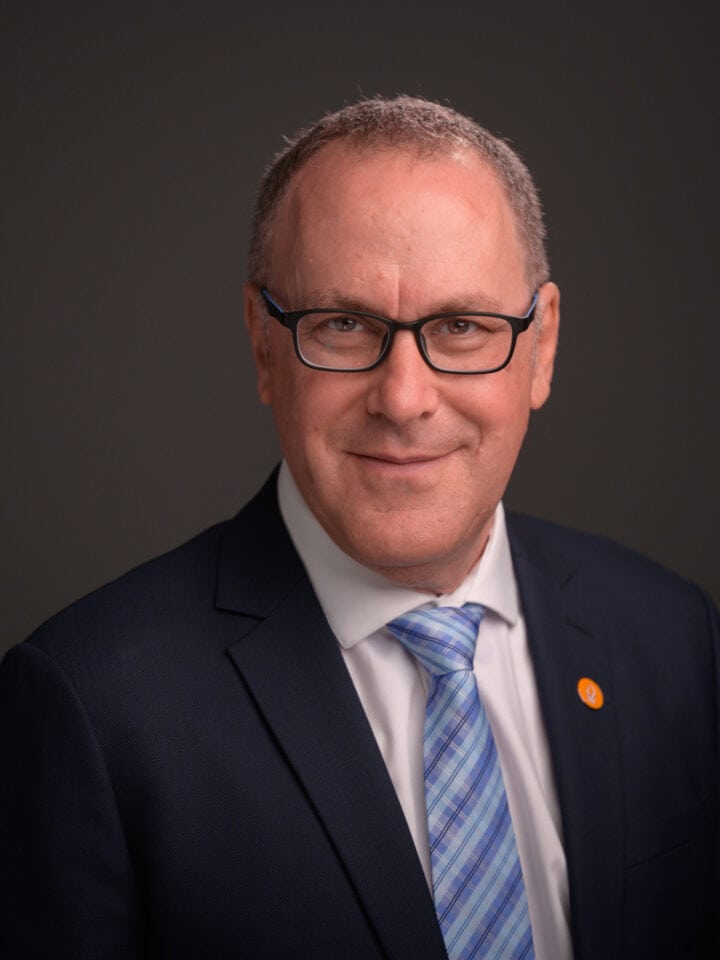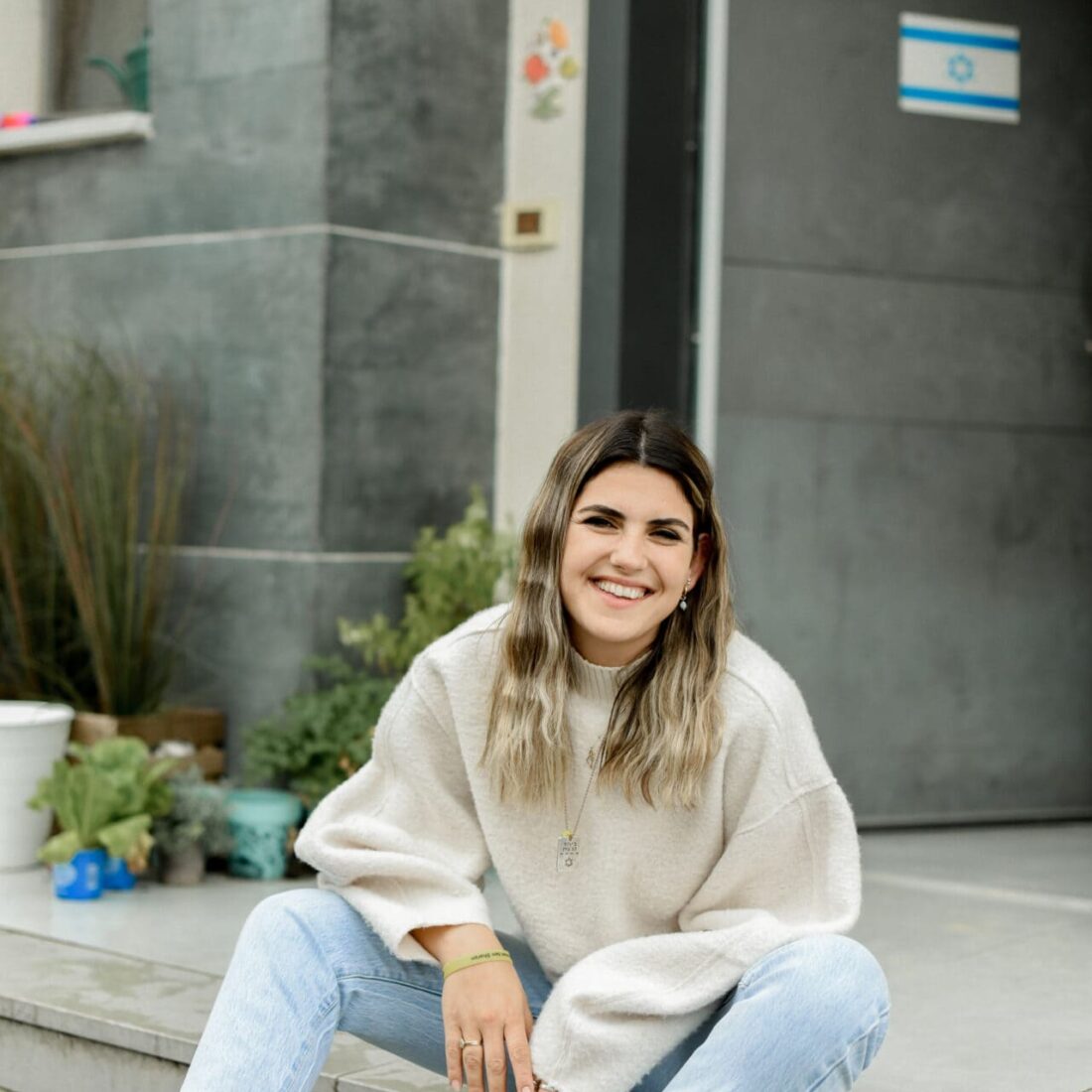I see myself as a community builder and a catalyst for positive change, working tirelessly to foster partnerships and create impactful change in society.
My identity as a feminist drives my commitment to promoting gender equality and empowering marginalized communities, in the belief that every individual, regardless of gender, deserves equal opportunities and representation in society.
My work revolves around addressing societal issues and driving meaningful transformation on personal, communal and national levels. I am currently focused on ensuring gender parity in decision-making spaces.
On October 7th, amidst the preparations for the upcoming local authorities’ elections, I found myself immersed in the momentum of the “5050 Partnership for Gender Equality” initiative, collaborating with activists nationwide to advance gender parity in decision-making roles, feeling the imminent change on the horizon.
After the shock and horror of that day, I understood the pressing needs of the community, leading me to cofound Ha’ogen (The Anchor), an organization dedicated to supporting reserve soldiers’ families.
We swiftly respond to the urgent needs of the community, drawing on the networks and solidarity of the communities and activists involved in the 5050 initiative. Establishing an anchor for reserve families was born from the belief in the community’s inherent strength and its capacity to support those in need, including those who found themselves in single-parent households.
In the aftermath of October 7th, we witnessed the remarkable power and resilience of our community. As the state struggled to function, the community stepped up to fill the void.
“Decisions made by predominantly male leadership directly influence the sociopolitical landscape and can contribute to crises like the one we’re facing.”
By advocating for gender-balanced decision-making in the rehabilitation mission all throughout Israel, we can collectively foster a more resilient and inclusive society. Additionally, by being informed, involved citizens and contributing through volunteering and donations, we can play a vital role in shaping a more equitable future for all.
We recognize that significant change often originates from grassroots movements, beginning within our own community and extending to influence policy at higher levels. This bottom-up approach reflects our commitment to driving meaningful transformation from within, ultimately shaping policies that better serve the collective needs of our community.
While working with Ha’ogen, I’ve resumed work on the 5050 project. These initiatives, though distinct, complement each other, ensuring both immediate relief and systemic change for our community’s wellbeing. One of my cofounders, Rachel Azaria, continues to manage Ha’ogen.
Witnessing the determination of individuals to overcome adversity fuels my own drive to make a positive impact. Additionally, I draw inspiration from the shared goals and aspirations of those I work with, knowing that together, we can effect meaningful change. Moreover, I find inspiration in the stories of courage and perseverance from diverse voices, reminding me of the power of collective action in shaping a better future.
Furthermore, I am motivated by examples from around the world, such as Rwanda, where following catastrophic events, one effective method of rehabilitation has been ensuring 50 percent representation of women in political positions.
In Israel, the war and ensuing crisis are not isolated events; they reflect the repercussions of a government largely dominated by men and disconnected from the public’s concerns.
“Witnessing the determination of individuals to overcome adversity fuels my own drive to make a positive impact.”
The challenge lies in fostering public understanding of this crucial connection. It’s about illuminating how the decisions made by predominantly male leadership directly influence the sociopolitical landscape and can contribute to crises like the one we’re facing.
In essence, the challenge is to facilitate public awareness and comprehension of the link between governance dynamics and societal outcomes. By doing so, we can foster a more informed and engaged citizenry capable of advocating for meaningful change in governance structures to prevent such crises in the future.
I Iive in Jerusalem with my partner Tomer and two sons – Ivri and Shilo. With municipal elections scheduled, we refocused our efforts on the 5050 project to increase the representation of female council members across the country.
Through campaigns and fieldwork, we saw significant progress, with a notable increase in the number of women serving on councils nationwide. Impressively, 20 councils achieved gender parity, demonstrating the impact of our initiatives.
Gender equality became a central issue in these elections, reflecting a growing awareness of its importance in Israeli society. In my view, this progress in leadership diversity is crucial for the rebuilding of Israel. Trust in our leaders and the cultivation of new leadership are essential components of this process, and initiatives like 5050 play a vital role in advancing these goals.
I choose to believe in the potential for progress and rehabilitation, even in the face of crises.
I acknowledge the challenges ahead, but I maintain faith that promoting collaboration and partnership between men and women can be a catalyst for positive transformation, leading to a stronger democracy.
Additionally, I recognize the importance of women’s participation in peace processes, and while the path to peace may be uncertain, I want to believe in the possibility of a more peaceful and equitable future for all in the region.
In essence, my hopes are not blind optimism but rather a conscious choice to believe in the power of inclusive partnerships, collective action, and a strengthened democracy to shape a better tomorrow.
My hope is that we move forward with leaders who prioritize inclusive partnerships and work towards achieving equality for all.





